cus
Presenter Name
Workshop Room
Workshop Level
Workshop Track
Agenda
(1) = Workshop on First Floor (3) = Workshop on Third Floor
 August 25, 2024 7:30 am - 4:30 pm
August 25, 2024 7:30 am - 4:30 pmCIT Coordinator's Certification Course
 Thomas von Hemert
Thomas von Hemert  John Wallschlaeger
John Wallschlaeger  Lori Wood
Lori Wood 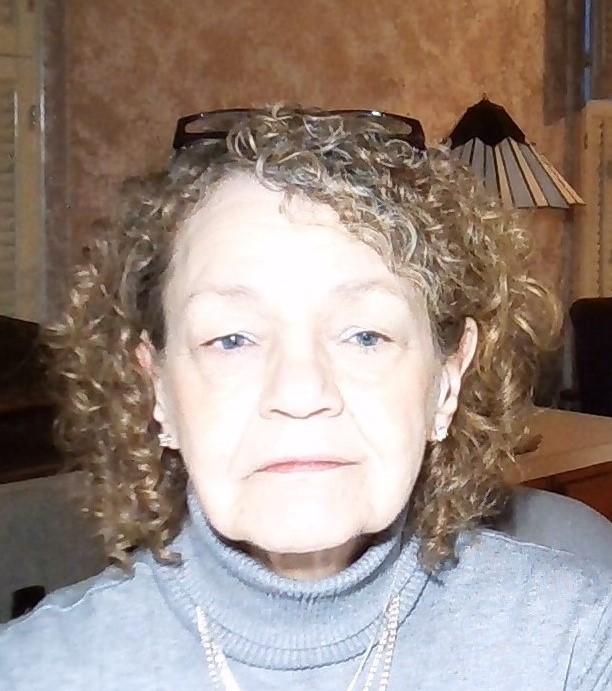 Suzanne Andriukaitis
Suzanne Andriukaitis Successful CIT programs have individuals who are at the heart of the programs, facilitating the relationships and managing the day-to-day aspects of the programs. These individuals—dedicated mental health professionals, law enforcement officers or advocates—are CIT coordinators. This 8-hour course of instruction, covers the tasks and topics of the various coordinators' roles and how to work with each other to develop or reform their community's crisis response system.
Room: Grand Ballrom 3 (3)
Track: Bonus Sunday
 August 25, 2024 8:30 am - 5:30 pm
August 25, 2024 8:30 am - 5:30 pmCIT Coordinator's Certification Course
 Marianne Halbert
Marianne Halbert  Amanda Stamps
Amanda Stamps  Jeanette Borunda
Jeanette Borunda  Jim Guidry
Jim Guidry  Habsi Kaba
Habsi Kaba Successful CIT programs have individuals who are at the heart of the programs, facilitating the relationships and managing the day-to-day aspects of the programs. These individuals—dedicated mental health professionals, law enforcement officers or advocates—are CIT coordinators. This 8-hour course of instruction, covers the tasks and topics of the various coordinators' roles and how to work with each other to develop or reform their community's crisis response system.
Room: Grand Ballrom 4 (3)
Track: Bonus Sunday
 August 25, 2024 9:00 am - 12:00 noon
August 25, 2024 9:00 am - 12:00 noonExpanding Your Range of Resilience
 Shawn Thomas
Shawn Thomas  Joe Willis
Joe Willis In this four hour workshop president and founder of 1st Responder Conferences, Shawn Thomas will introduce participants to five years of trends in resilience presentations delivered during their conferences. First H.E.L.P. Chief Learning Officer, Joe Willis will provide an in-depth look at the First HELP #RANGE of Resilience. Participants will leave this workshop, ready to expand their, range of resilience.
Room: Grand Ballroom 7/8 (3)
Track: Bonus Sunday
 August 25, 2024 1:00 pm - 3:00 pm
August 25, 2024 1:00 pm - 3:00 pmVA Roundtable 2.0
 Sabrina Taylor
Sabrina Taylor  Stephanie Lefebvre
Stephanie Lefebvre  MarkTurney
MarkTurney  Matthew Moody
Matthew Moody This session will build from last year's VA Roundtable conversation. Come learn about the ideas and practical strategies to strengthen your VA's relationship to CIT programs and VA's response to crises involving veterans, including Veteran Response Teams (VRT)
Room: Grand Ballroom 9 (3)
Track: Bonus Sunday
 August 25, 2024 2:30 pm - 4:30 pm
August 25, 2024 2:30 pm - 4:30 pm Strengthening the Voice of Community Partners
 Jenna Mehnert Baker
Jenna Mehnert Baker  Kevin Fischer
Kevin Fischer  Madonna Greer
Madonna Greer If you are a family member, a peer or advocate, this session supports the work you do in your local communities. Voices of those with lived experience are key to the successful implementation of a CIT program. Join us to connect with others in similar roles across the country and to learn more about the critical role you play in a successful CIT PROGRAM.
Room: Grand Ballroom 7/8 (3)
Track: Bonus Sunday
 August 25, 2024 8:00 am - 5:00 pm
August 25, 2024 8:00 am - 5:00 pmContemplation Room
 Chaplain Daniel "Padre" Coffey
Chaplain Daniel "Padre" Coffey  Chaplain James Richard "Chap" Smith
Chaplain James Richard "Chap" Smith  Chaplain Richard "Chappy" Hartman
Chaplain Richard "Chappy" Hartman Like the Sensory Room, this will be a place where an attendee can find a quiet and serene place to reset their system. This room is set aside for spiritual and emotional wellbeing. The Contemplation Room will be staffed at periodic times by Chaplain Daniel “Padre” Coffey, Chaplain James Richard “Chap” Smith, and Chaplain Richard “Chappy” Hartman.
All three Chaplains are trained in CISM, Peer Support, and have many other certifications and trainings. They can provide attendees with any requested religious, spiritual, and emotional support. Our Chaplains are here to assist you in anyway possible.
Currently Chaplain Coffey will be available Monday, Tuesday morning and Wednesday. Chaplain Smith will be available Tuesday and Chaplain Hartman will be available on Wednesday.
When they are not attending the Contemplation Room, all of the Chaplains will be walking around the Conference space greeting and visiting with attendees. Make sure you tell him Hi!!!!
Room: Room 308
 August 26, 2024 11:00 am - 1200 pm
August 26, 2024 11:00 am - 1200 pmModernizing Law Enforcement De-Escalation Training in America
 Paul Hartinger
Paul Hartinger In December, 2022 President Biden signed the ""Law Enforcement De-Escalation Act"" [SB 4003] into law which will secure a national model for de-escalation curriculum affecting law enforcement across the country. The law creates curriculum and grant funding for de-escalation training programs for law enforcement and mental health professionals. Has your CIT program kept up with changes in programming, curriculum, current models, and trends concerning de-escalation methods, tactics and techniques?
This course will explore details of the de-escalation act, give details of what training already exists, and describe how your CIT program can ensure it has the latest and greatest training tools for your certification programs."
Room: White River C/D (1)
Level: Beginner
Track: De-Escalation
 August 26, 2024 11:00 am - 1200 pm
August 26, 2024 11:00 am - 1200 pmSupport Across the SIM: Strategies for Diversion and Engagement
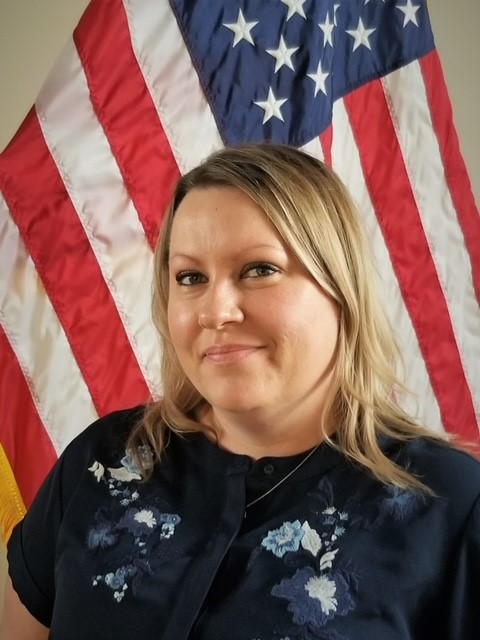 Tenasha Hildebrand
Tenasha Hildebrand  Paula Krasselt
Paula Krasselt Using the SAMHSA Sequential Intercept Map, we will provide attendees with an overview of innovative strategies and supports across the SIM to prevent, divert, and connect people to behavioral health support and minimize criminal justice involvement.
Room: White River F (1)
Level: Beginner
Track: De-Escalation
 August 26, 2024 11:00 am - 1200 pm
August 26, 2024 11:00 am - 1200 pmTo Leave or Not to Leave? That is the Question.
 Elizabeth Reyes
Elizabeth Reyes More and more, the courts are making it clear that officers should not be leaving a person in a worse condition than they found them. What does this mean for police who are handling calls involving suicidal persons? There have been significant changes in both the law and public opinion that pertain to how law enforcement should deal with suicidal individuals in their own home. In July 2019, the LAPD implemented a Training Bulletin to address this very issue--Tactical Disengagement.
Room: White River G/H (1)
Level: Beginner
Track: CIT Programming
 August 26, 2024 11:00 am - 1200 pm
August 26, 2024 11:00 am - 1200 pmWorking with State and County Leaders to Advance CIT Partnership
 Jenna Mehnert Baker
Jenna Mehnert Baker  Annie Strite
Annie Strite  Tina Clymer
Tina Clymer Effective crisis response requires the engagement of numerous partners including 911/988, law enforcement, mobile crisis providers, and crisis stabilization programs. The availability of these resources and the strength of the partnerships depends on both local and state leaders. This workshop will help you to develop the skills and understanding necessary to effectively work with county and state mental health system leadership.
Room: 101/102 (1)
Level: Beginner
Track: State Crisis Response
 August 26, 2024 11:00 am - 1200 pm
August 26, 2024 11:00 am - 1200 pmTransforming Crisis Response: Expanding the Training Model
 Meghan Taft
Meghan Taft  Melinda Holliday
Melinda Holliday  Amy Watson
Amy Watson How can we ensure that individuals in crisis receive the support they need without overburdening law enforcement? This workshop tackles the pressing issue of workforce shortages and inadequate training in crisis response within the behavioral health field. Individuals experiencing crisis often find themselves underserved, leading to heightened interactions with law enforcement and inappropriate responses to their needs. Despite significant efforts to train law enforcement, insufficient funding and training for clinicians persist, exacerbating the problem. To confront this challenge, a collaborative solution has been developed based on extensive research and feedback from service users and professionals. Through a partnership between Wayne State University and Michigan Department of Health and Human Services (MDHHS), a comprehensive 40-hour training program has been tailored specifically for behavioral health professionals working in crisis systems. Attendees will have the opportunity to explore the components of this training, including the CARES model, and discuss how it can effectively address workforce shortages and enhance crisis response in communities.
Room: Grand Ballroom 7 (3)
Level: Intermediate
Track: CIT Programming
 August 26, 2024 11:00 am - 1200 pm
August 26, 2024 11:00 am - 1200 pmCrisis Response and Intervention Training (CRIT): What it means for your CIT training.
 Michele Saunders
Michele Saunders  Michael Hatch
Michael Hatch 
Kelly Burke
The Bureau of Justice Administration funded the development of a training curriculum for law enforcement and other first responders to behavioral health and IDD crises. The development of this curriculum has been a multiyear journey with CIT International’s involvement and expertise along the way. This curriculum is based on the CIT Memphis Model for training. This presentation will discuss the development of the curriculum, the past and present partners and how to deliver it effectively within your community. Also, this presentation will share the resources of the National Policing Institute, International Association of Chiefs of Police (IACP) and CIT International that can support your crisis response training and other initiatives as well as . This truly has been a partnership!
Room: White River A/B (1)
Level: Beginner
Track: CIT Programming
 August 26, 2024 11:00 am - 1200 pm
August 26, 2024 11:00 am - 1200 pmCIT Stat Sheet - Maximize Data - Minimal Cost
 Officer Nigel Payne
Officer Nigel Payne  2nd Lt. Marcarles Walker
2nd Lt. Marcarles Walker CIT Memphis began a CIT Stat Sheet years ago. The form was paper - a flow that resulted in delays and some data errors. Recently, CIT Memphis went fully digital with a digital CIT Stat Sheet. CIT Memphis operates under the budget of the Memphis Police Department with no line budget for the Crisis Intervention Team. The need to collect the important data but at minimal cost was extremely important. 2nd Lt. M. Walker, along with 2nd Lt. D. Walker, and Officer N. Payne created a digital form using Formsite. This workshop will show agencies how they could create the digital form and collect the information for statistical data, grants, and the betterment of their department. Officer Nigel Payne nigel.payne@memphistn.gov "Officer Nigel Payne is a 13-year veteran of the Memphis Police Department. He currently serves as the Crisis Intervention Coordinator at the Memphis Police Department Training Academy. Officer Payne is a Field Training Officer, Crisis Intervention Officer, Peer Counselor, Crisis negotiator, and Union Representative at his workstation. Officer Nigel Payne plans to further his career with the Memphis Police Department by becoming a motivational speaker. He is proficient in less-than-lethal weaponry, such as the SL6 and Taser.
Officer Nigel Payne enjoys working in the community and has completed several hours of community service by working with juveniles at JIFF (Juvenile Intervention Faith Follow-up), the local juvenile center.
He is a graduate of The University of Memphis, with a bachelor’s degree in Criminal Justice and Criminology. He is a recent graduate of Bethel University, where he obtained a master’s degree in criminal justice. Officer Payne is married and has two children. He is a proud member and Sgt at Arms of Phi Beta Sigma, Fraternity Incorporated, Memphis Chapter.
Room: Grand Ballroom 8 (3)
Level: Beginner
Track: Data/Research
 August 26, 2024 11:00 am - 1200 pm
August 26, 2024 11:00 am - 1200 pmThe Power of a Name – Preserving Humanity for our Un-housed
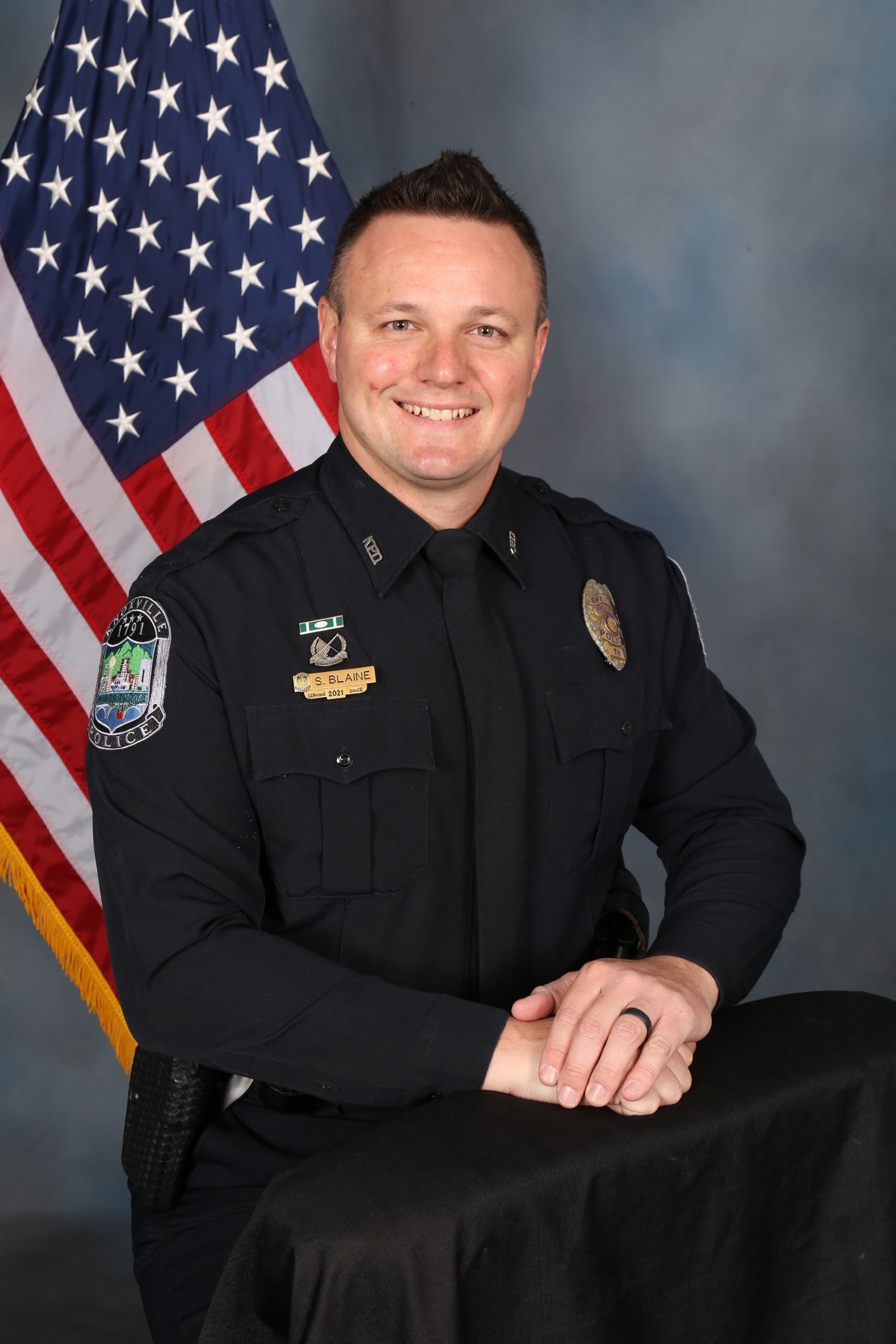 Seth Blaine
Seth Blaine  Candace Allen
Candace Allen 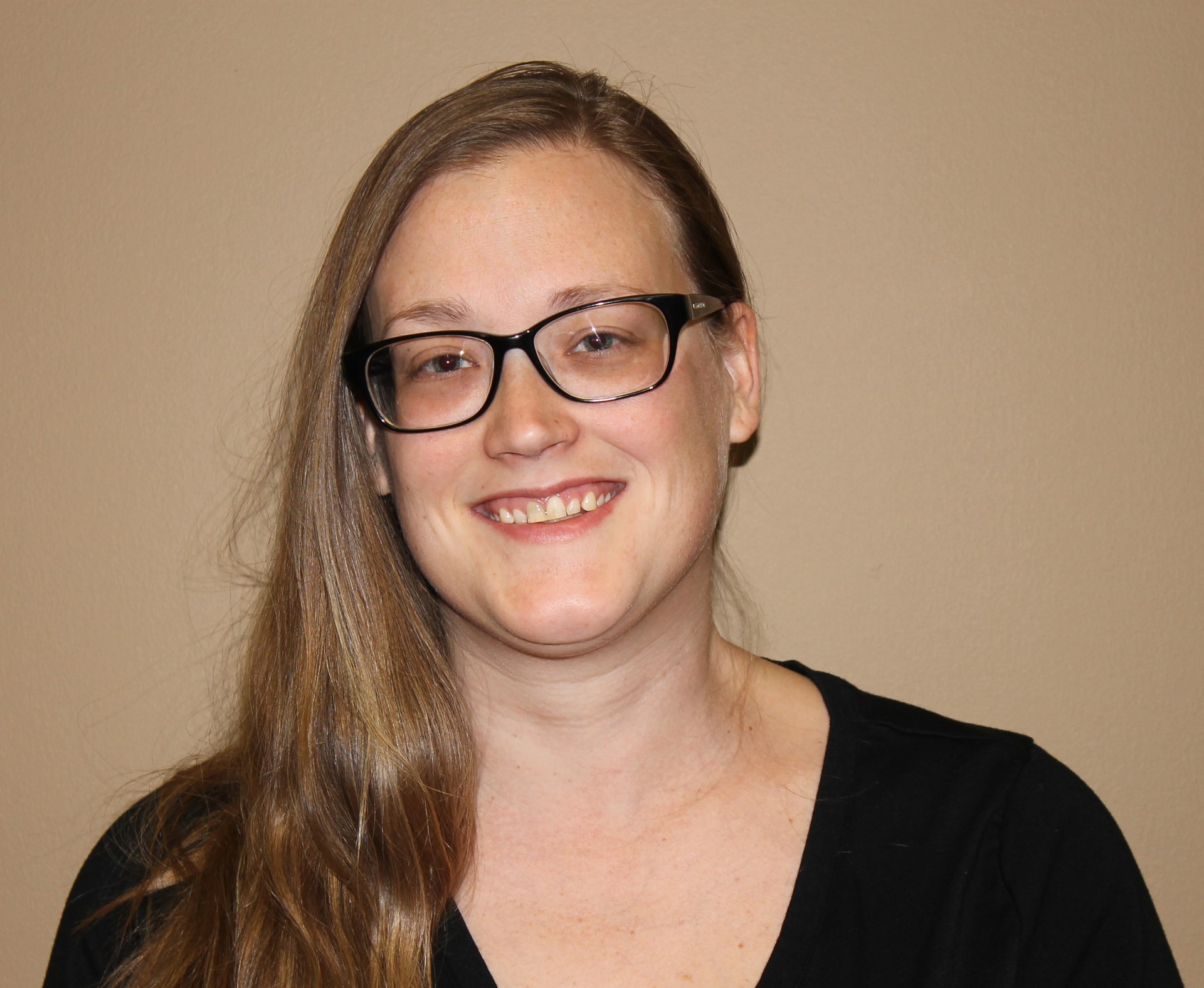 Elaine Blanton
Elaine Blanton 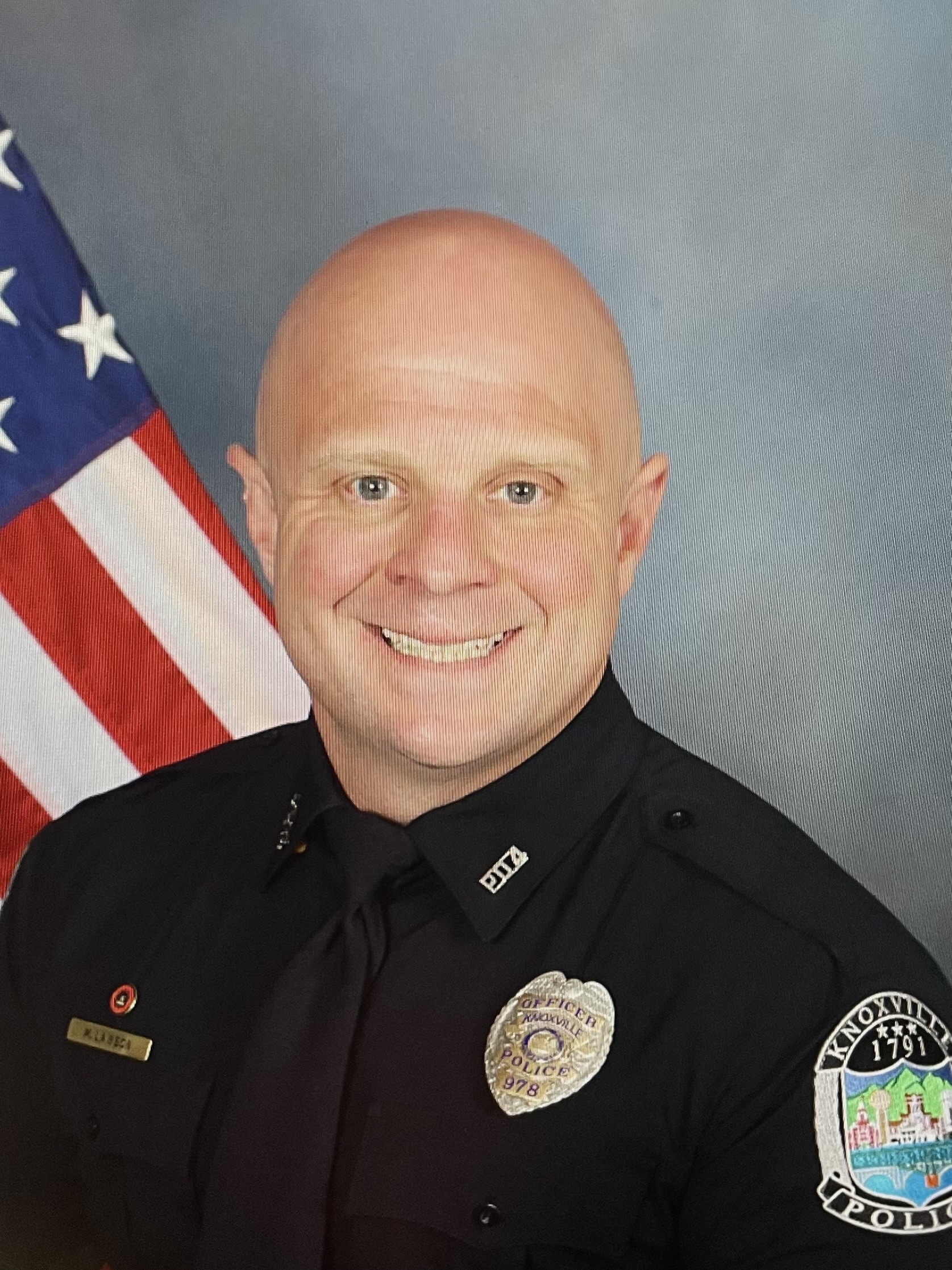 Matt Lawson
Matt Lawson How would you feel if you exited the interstate and saw your child, parent, or sibling begging for money at the bottom of the ramp? Or perhaps you strolled down the sidewalk and noticed them huddled in an abandoned storefront for warmth, possessing nothing more than a threadbare jacket and aging backpack? All too often, it’s become routine for officers to forget these individuals aren’t just calls for service, but are people with names - sons and daughters, mothers and fathers, and sisters and brothers - who once had dreams that didn’t amount to sleeping on the streets. It’s no secret the un-housed individuals in our communities spark strong emotions, heated conversations, and even new policy creation, yet program formulation and implementation are not the purposes of this workshop. Here, we narrow our focus with pinpoint precision: how can our officers meet this person where he or she is at right now, and offer the support, empathy, and assistance he or she needs in this moment? Join us for a frank conversation ranging from combatting hurtful stereotypes, to increasing officer awareness, to teaching our officers how to approach these individuals, which questions to ask, and what responses to give to improve our chances of successful engagements that truly make a difference in not only their lives, but also in the lives of the officers who have sworn to protect and serve them.
Room: Grand Ballroom 9 (3)
Level: Beginner
Track: CIT Programming
 August 26, 2024 11:00 am - 1200 pm
August 26, 2024 11:00 am - 1200 pmLeveraging Crisis Intervention Teams as the Foundation for Comprehensive Officer Wellness Programming
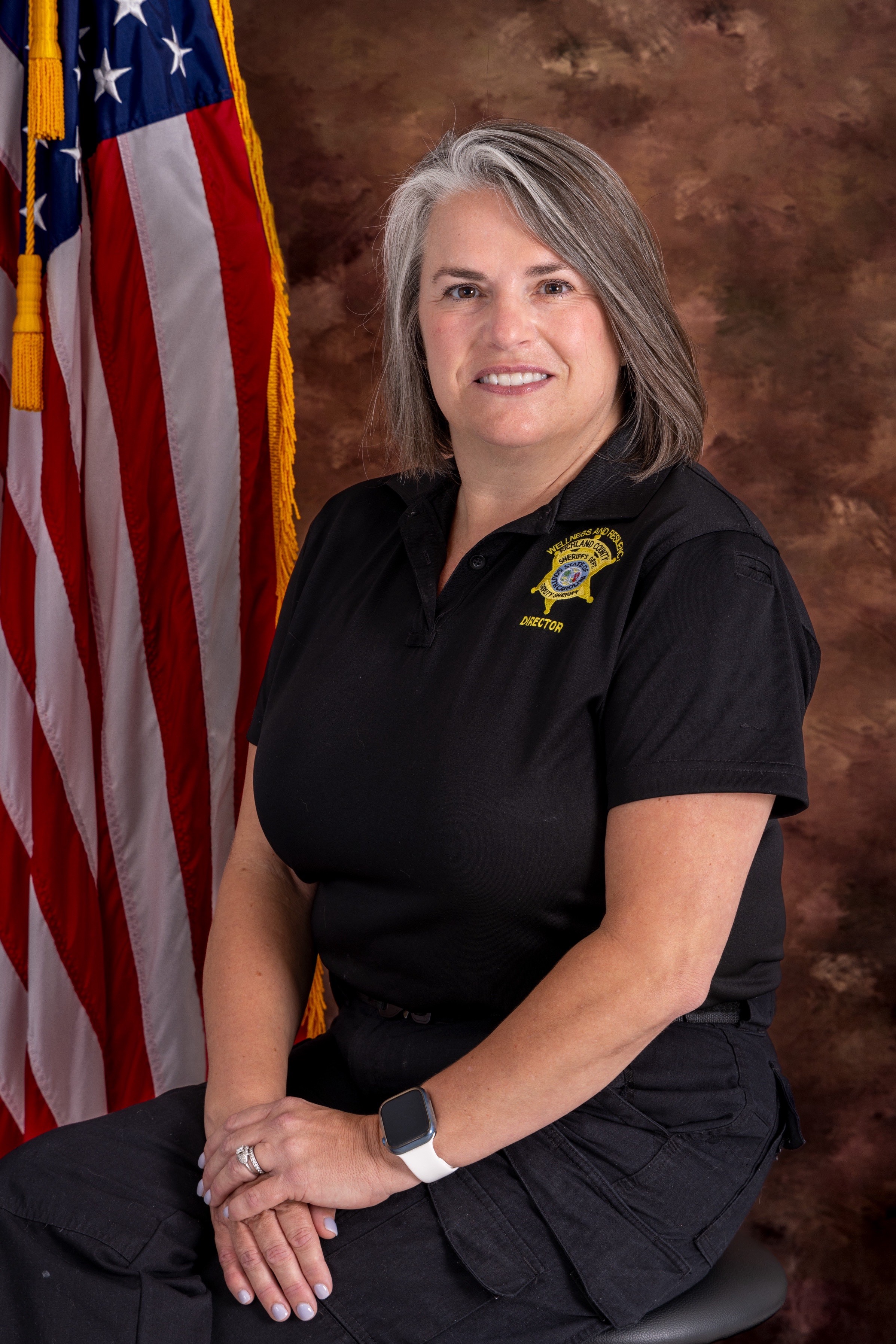 Allison Farrell
Allison Farrell  Maria Yturria
Maria Yturria Richland County Sheriff’s Department will engage participants as they learn strategies that have made a “top down” wellness program successful in South Carolina’s largest Sheriff’s Department. Following a three-year implementation timeline that uses the implementation of Crisis Intervention Teams as a foundation for wellness topics include: leveraging local trends and national politics, establishing community partnerships that support and sustain CIT, creating buy-in through intentional introductions to program elements, CIT and wellness team staffing; the role of assessments in the community and internally, the intersection between CIT, wellness staff and command staff, access to care, removing barriers to care, creating a culture that advocates for wellness, and techniques for improving the utilization of Crisis Intervention Teams while conveying clear and concise programmatic results as well as lessons learned.
Room: White River E (1)
Level: Intermediate
Track: CIT Wellness
 August 26, 2024 11:00 am - 1200 pm
August 26, 2024 11:00 am - 1200 pmExcellence in Crisis Mobile Team Dispatch
 Cassie Villegas
Cassie Villegas  Jess Howard
Jess Howard Dispatching mobile crisis teams is a critical step in the crisis continuum of services. The increased awareness for 988 services has highlighted the need for standards of practice when an in-person response is needed. Solari is the country’s first center to be accredited for their dispatch services by the International Council for Helplines. In this session, attendees will learn the importance of the call center being the front door for crisis care and how to optimize collaboration between crisis lines and mobile teams to ensure quality care, safety, data, reporting and closed-feedback loops to maintain continuity of care.
Room: White River I/J (1)
Level: Intermediate
Track: 911/988
 August 26, 2024 11:00 am - 1200 pm
August 26, 2024 11:00 am - 1200 pmImproved Opioid Response: Cops, Narcan & Peers
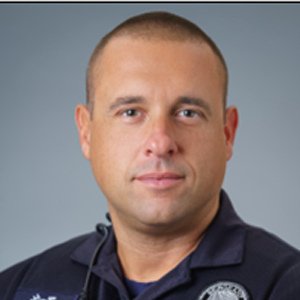 Sgt. Robert Ferraro
Sgt. Robert Ferraro  Nick Margiotta
Nick Margiotta Law-Enforcement is on the front-line of the Opioid epidemic. While an increasing number of departments are equipping officers with Narcan, which greatly increases the ability to prevent opioid fatalities, too often, there is little follow-up or ongoing coordination for preventing future overdoses use. CIT Programs have transformed how law-enforcement addresses individuals experiencing behavioral-health crises. Unfortunately, in many communities, even those with robust crisis-systems, most communities struggle to connect people to meaningful ongoing care, needed to address underlying behavioral-health needs.
In response, Tempe’s CIT Program and EMPACT partnered on ground-breaking collaboration to deploy Narcan and built a 24/7 system to immediately connect the individual to Peer-Support Specialists, even while they’re still in the hospital. To address the ongoing coordination gap, we have implemented Post-Crisis Transition Navigation services. CIT Officers can seamlessly refer individuals to these Certified Peer-Navigators, who bridge this gap. Navigators work during the post-crisis period, providing support and “warm-handoffs” to ongoing services and treatment. Rather than just handing someone a “resource-sheet,” the Navigator functions more like a “Tour-Guide” to literally and figuratively walk alongside the individual, resulting in amazing outcomes. A perfect partnership of CIT and community behavioral health working hand-in-hand to break the cycle of addiction and reduce the burden on law-enforcement."
Room: Grand Ballroom 10 (3)
Level: Advanced
Track: CIT Programming
 August 26, 2024 11:00 pm - 12:00 pm
August 26, 2024 11:00 pm - 12:00 pm DOJ, the ADA, and You: Innovations in Crisis Response
 Jared Hager
Jared Hager How can a crisis response system build safer communities and protect civil rights?
Recent reports from U.S. Department of Justice pattern or practice investigations show how the Americans with Disabilities Act impacts 911 call centers and police departments. Join attorneys from DOJ’s Civil Rights Division for a conversation on what works, what needs work, and how a crisis response system can help meet people’s needs and protect their rights.
We will discuss how public safety systems—call centers, non-police responders, CIT, and patrol—can work together to get the right people to the call and achieve effective outcomes. And we will hear from you about innovative approaches, roadblocks, and strategies for a successful behavioral health response system. "
Room: 103/104 (1)
Level: Intermediate
Track: CIT Programming
 August 26, 2024 1:30 p.m - 3:00 p.m.
August 26, 2024 1:30 p.m - 3:00 p.m. What a Difference a Decade Makes! Mississippi’s Radical Crisis Response System Transformation
 Linda Foley
Linda Foley  Marcus Crowley
Marcus Crowley  Sitaniel Wimbley
Sitaniel Wimbley  Sgt. Sabrina Redmon
Sgt. Sabrina Redmon This workshop will detail Mississippi’s community-based transformation of its crisis response system including development, expansion, and coordination of community-based services across the state. Participants will learn about the types of crisis response services including its statewide CIT operations, mobile crisis teams, peer supports, 988, diversion centers, crisis stabilization units, and various forensic services; their transformation from development to operations; funding resources for implementation; and their programmatic outcomes.
Room: 101/102 (1)
Level: Intermediate
Track: State Crisis Response
 August 26, 2024 1:30 p.m - 3:00 p.m
August 26, 2024 1:30 p.m - 3:00 p.m Autism Response - How to make it better next time
 Michael Wells
Michael Wells People with IDD, including autism, are 7x more likely to come into contact with emergency responders than the neurotypical population. By the end of this session, participants will gain a comprehensive understanding of key learning objectives related to autism spectrum disorder (ASD) response strategies. Firstly, they will learn how to effectively recognize the signs and symptoms of autism, enabling prompt identification and appropriate support. Secondly, participants will be equipped with skills to differentiate autism from other conditions, facilitating accurate assessments and responses. Additionally, they will learn techniques for de-escalating individuals with autism during emergency 911 calls, promoting safety and effective communication. Moreover, participants will understand the importance of closing communication loops with autistic callers and their families, fostering trust and clarity in interactions. Finally, they will learn how to relay essential information back to their squad and community, ensuring coordinated and informed responses to ASD-related incidents. Understanding that ASD symptoms vary in severity, number, across time, and between situations underscores the need for tailored approaches and ongoing education in effectively addressing the diverse needs of individuals on the autism spectrum.
Join Mike Wells for a unique perspective of 30 years of law enforcement experience and the dad of a child with Autism.
Room: 103/104 (1)
Level: Beginner
Track: IDD
 August 26, 2024 1:30 p.m - 3:00 p.m
August 26, 2024 1:30 p.m - 3:00 p.m Why We Didn't Tell You: Learning from lived experience of those with suicidal thoughts
 Grace Grinnell
Grace Grinnell  Valerie Lepoutre
Valerie Lepoutre  Steve MacHattie, LCSW
Steve MacHattie, LCSW After a suicide, survivors often grapple with questions of "Why didn't they tell me they were thinking of suicide? Why didn't they get help?' This workshop highlights the unique perspective of suicide attempt survivors who will share their personal stories and research that identifies existing barriers to seeking help as well as targets for improvements at multiple levels, including in clinical settings, schools, in the community and with law enforcement. Attendees will have an opportunity to engage in lively dialogue with presenters about existing problems and solutions to increase the likelihood of asking for help in the future. This program is currently being used as a module in the state of Connecticut CIT training through the Connecticut Alliance to Benefit Law Enforcement.
Room: Grand Ballroom 7 (3)
Level: Beginner
Track: CIT Programming
 August 26, 2024 1:30 p.m - 3:00 p.m
August 26, 2024 1:30 p.m - 3:00 p.m Going Rogue: Expecting the Unexpected During Role-Play Training
 Amber Vernon
Amber Vernon  Kelly Furgurson
Kelly Furgurson  Cindy Marlowe
Cindy Marlowe Despite planning and preparation, CIT training students will “go rouge” during scenario-based training. If not addressed in the moment, this can negatively impact the training experience for both students in the scenario and those observing. This presentation will address steps CIT Instructors can take to respond to unexpected student actions through the use of pre-scenario instructions and the use of the Coach and role-players (primary and secondary). Panel members will use examples from an established CIT training program to highlight what can go wrong and how to respond in-advance and in-the-moment.
Room: White River I/J (1)
Level: Intermediate
Track: CIT Programming
 August 26, 2024 1:30 p.m - 3:00 p.m
August 26, 2024 1:30 p.m - 3:00 p.m Force Considerations and Documentation on Crisis Contacts, Documenting the Good Work We Do
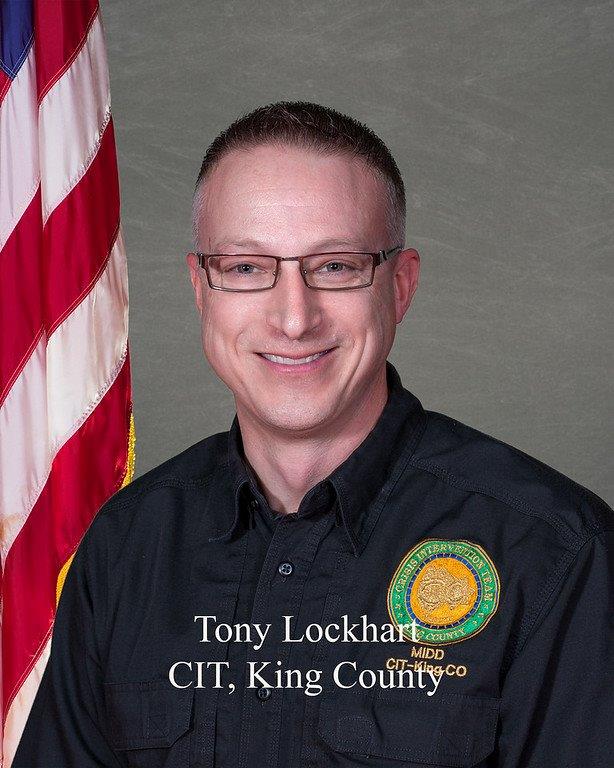 Tony Lockhart
Tony Lockhart The class will discuss the ever-changing legal landscape of law enforcement interactions with individuals in crisis. We will take a critical look at use of force considerations while wearing a crisis lens. Recent court cases have re-ignited conversations around law enforcement uses of force when interacting with persons in behavioral crisis. We will discuss what the courts considered (and didn’t) and what the decisions mean to the patrol officer, law enforcement leaders and policies. Finally, we will discuss articulating pre-force efforts (de-escalation) to reduce the need for force.
Room: White River A/B (1)
Level: Intermediate
Track: CIT Programming
 August 26, 2024 1:30 p.m - 3:00 p.m
August 26, 2024 1:30 p.m - 3:00 p.m CIT Connect
 Habsi Kaba
Habsi Kaba Is this your first time at the CIT International Conference? Have you ever wondered where you fit in with your community CIT program? With CIT International? At this conference? This workshop is for you! CITI Board Members will discuss all things CIT. We will answer questions, discuss programming, talk about how you fit in, and how to navigate and network to make the most out of the conference.
Room: White River C/D (1)
Level: Beginner
Track: CIT Programming
 August 26, 2024 1:30 p.m - 3:00 p.m
August 26, 2024 1:30 p.m - 3:00 p.m Breaking Silos - Partnering Police With Social Workers to Navigate Those Most Marginalized.
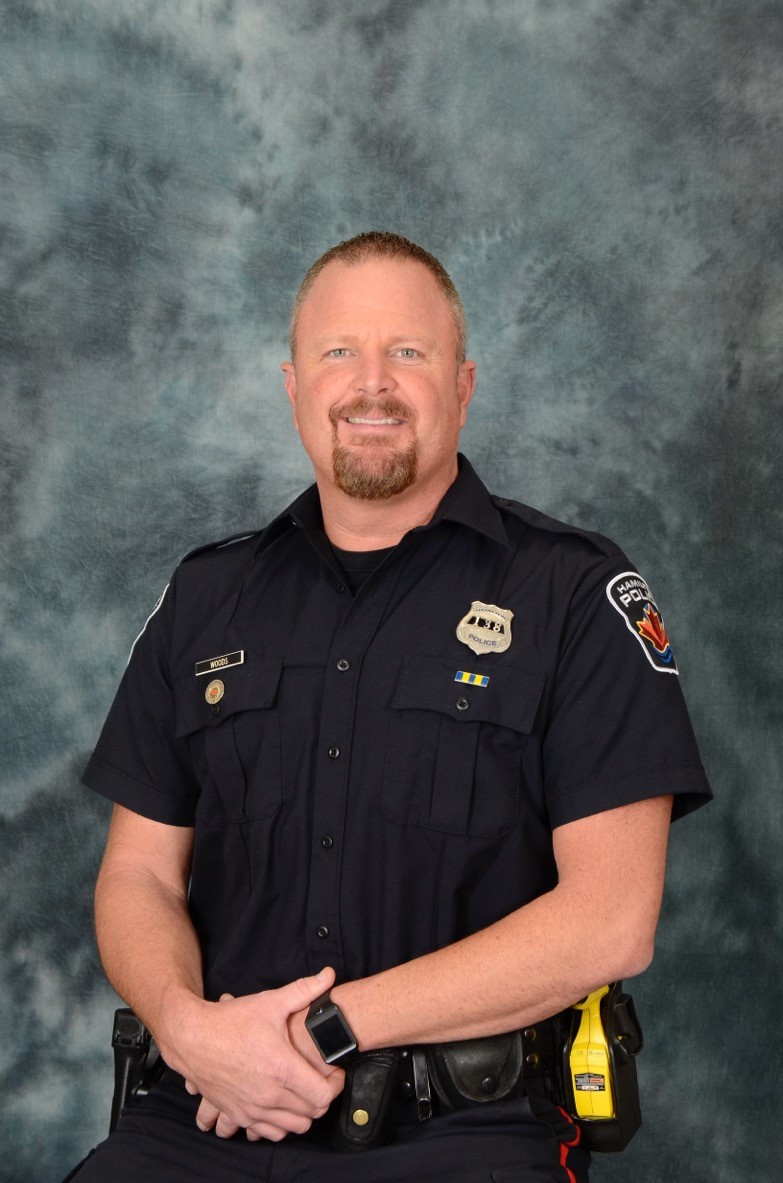 Scott Woods
Scott Woods  Pete Wiesner
Pete Wiesner  Kassandra Roul
Kassandra Roul  Lisa Gajewicz
Lisa Gajewicz The "Marginalized Triangle" (homelessness, addiction and mental health) is a continuing epidemic in cities right across North America. Presently police agencies are being dispatched to individuals suffering within the social determinants of health. The right approach was found in Hamilton, Ontario, Canada.
In 2022, the Hamilton Police Service (HPS) became the first police service in Canada to give grant dollars from a police budget to pay the salaries of social workers to assist those most vulnerable, rather than police intervention to a social need. By creating a team comprised of these specially skills community stakeholders, the HPS embarked on new community partnerships that saw a transfer of 1.5M in policing dollars to pay for the salaries of the SME social workers who are deployed, often without police intervention, to these most vulnerable members of the community.
Presently the RIST Team is comprised of 11 civilian navigators from 9 community NFP's are deployed 5 days a week in the streets of Hamilton to navigate those to a healthier and more viable lifestyle.
Room: Grand Ballroom 10 (3)
Level: Intermediate
Track: Crisis Systems Transformation
 August 26, 2024 1:30 p.m - 3:00 p.m
August 26, 2024 1:30 p.m - 3:00 p.m CIT Program Certification: Understanding Expectations
 Jenna Mehnert Baker
Jenna Mehnert Baker  Marianne Halbert
Marianne Halbert CIT International created program certification to recognize the outstanding work and dedication of local communities in their implementation of the Crisis Intervention Team model. The purpose of the workshop is to explain the process, expectations, and possible outcomes of applying for program certification. This very practical workshop will help you understand what CIT evaluators look for when considering whether a program should be certified. The value of certification for local communities will also be discussed.
Room: White River E (1)
Level: Beginner
Track: CIT Programming
 August 26, 2024 1:30 p.m - 3:00 p.m
August 26, 2024 1:30 p.m - 3:00 p.m Serving Those Who've Served: A Look Into Veterans Response Teams.
 Edward Dobleman
Edward Dobleman  Cecilia Gonzalez
Cecilia Gonzalez  Christopher Southard
Christopher Southard 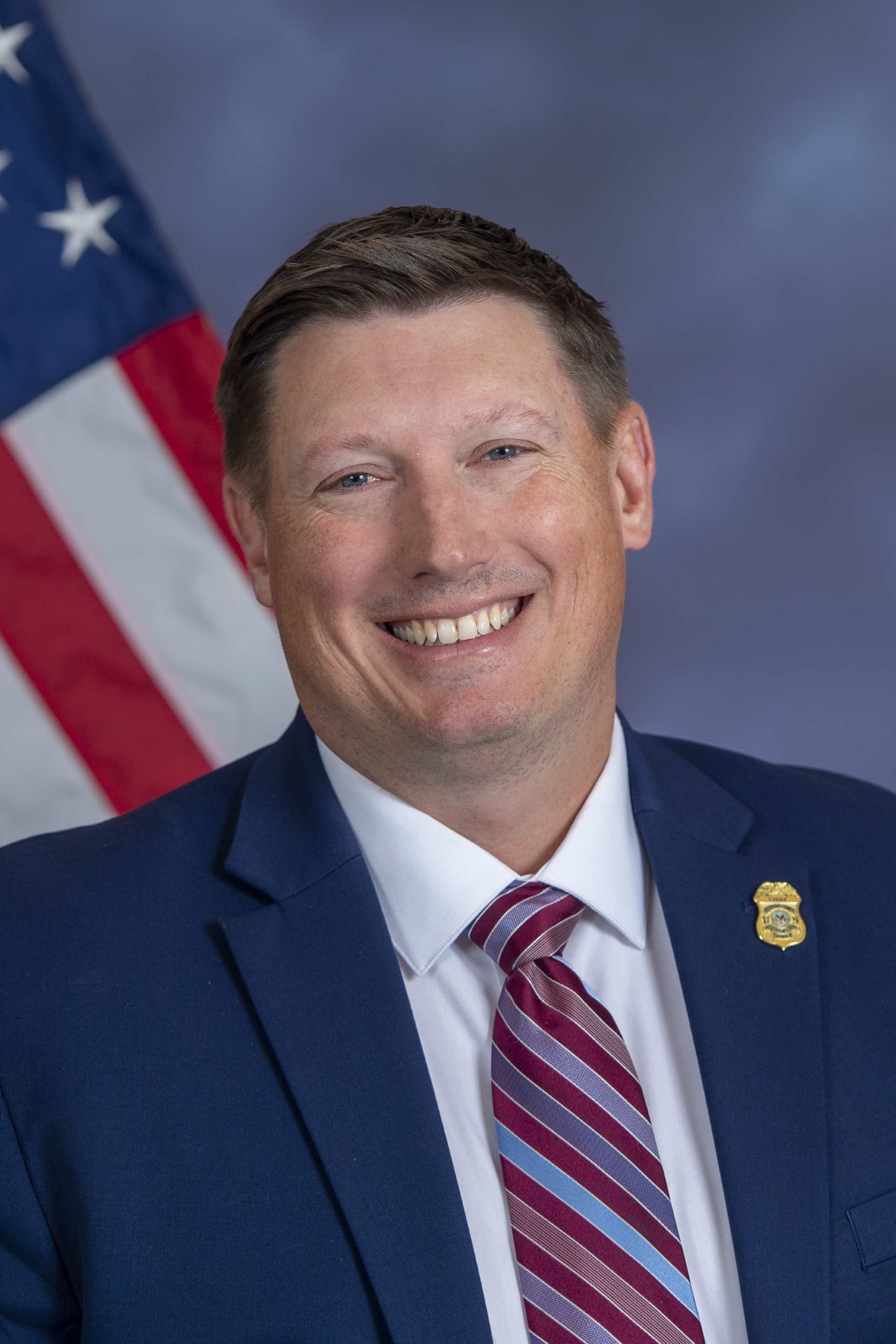 Paul Woodland
Paul Woodland A 2023 Pew Research study found that Veterans who have been arrested or incarcerated are twice as likely to die by suicide than those who have not, and Veterans are 13% more likely to have contact with law enforcement than the average citizen. In this session, several local law enforcement agencies & Veterans Health Administration partners will discuss how they built Veterans Response Teams to effectively connect veterans in NJ, DE, and PA, on a peer-to-peer level, with local resources designed to divert them from the justice system and into treatment programs to address the root cause issues that often lead to law enforcement interaction. Attendees will hear how VRT referrals have saved lives and facilitated positive changes in Veterans' lives & be provided with resources to help them start their own teams.
Room: White River F (1)
Level: Intermediate
Track: CIT Programming
 August 26, 2024 1:30 p.m - 3:00 p.m
August 26, 2024 1:30 p.m - 3:00 p.m WTF is FTD? Recognizing Frontotemporal Dementia and De-escalating Unsafe Behaviors
 Rita Jablonski
Rita Jablonski  Reggie Parker
Reggie Parker In 2021, mental health liaison officer Sergeant Reggie Parker was contacted by a frantic wife of a man diagnosed with frontotemporal dementia (FTD). FTD affects the parts of the brain responsible for judgment and socially appropriate behavior. The man living with FTD was walking to the local elementary school and asking parents, who were dropping off or picking up their children, for rides to various places. Sgt. Parker, along with the police officers who responded to multiple calls about the man’s behavior, had never heard of FTD. In this workshop, participants will learn about FTD from the perspective of three people: Officer Parker, nurse practitioner Rita Jablonski (who was the clinician of record), and a recorded interview with the wife. This information is vital for members of law enforcement and crisis interventionists because FTD looks nothing like Alzheimer’s dementia. FTD affects younger people, many in their 40s and 50s. FTD shows up as unusual and unlikely behavioral problems first, followed by memory problems. People living with FTD are seven times more likely than people living with Alzheimer’s dementia to engage in criminal behavior because of impulsivity and poor judgment.
Room: White River G/H (1)
Level: Beginner
Track: CIT Programming
 August 26, 2024 1:30 p.m - 3:00 p.m
August 26, 2024 1:30 p.m - 3:00 p.m Clubhouse Indiana: Sustaining and Expanding the Clubhouse Model in the Hoosier State
 Mike Shorter
Mike Shorter Clubhouse Indiana has existed since 2002 and represents the combined efforts and shared vision of Accredited Clubhouse Model programs in the Hoosier State. Indiana Clubhouses have been a part of many CIT trainings over the years and have shared their unique perspective on mental illness and the journey of recovery from it to hundreds of First Responders.
In this workshop we hope to educate First Responders on what a Clubhouse is and is not, how a supportive Clubhouse community can contribute to increased mental health outcomes, and how first responders and Clubhouses can work together to make their communities safer and more vibrant.
We also wish to share stories from Clubhouse members about experiences with first responders (both positive and negative) to explain how CIT training can make an impact on improving the quality of life for individuals living with severe mental illnesses across the country." Mike Shorter mikeshorter@clubhouse-indiana.org
Room: Grand Ballroom 8 (3)
Level: Beginner
Track: CIT Programming
 August 26, 2024 1:30 p.m - 3:00 p.m
August 26, 2024 1:30 p.m - 3:00 p.m From the Depths of Despair to the Light of Hope: A Clinician’s Story
 Diana Guzman
Diana Guzman Life has an uncanny way of throwing unexpected challenges our way. For me, it was a battle with my own mind that led me to the brink of despair. However, through unwavering perseverance and the support of loved ones, I emerged as a survivor. Today, I share my story not only to inspire hope but also to shed light on the importance of mental health and the impact it can have on a clinician’s life. In this presentation we will embark together in a journey of self-discovery and introspection as we dive deeply into the depths of my mental health struggles as a therapist but also my testament to the resilience of the human spirit and the transformative power of seeking help.
Room: Grand Ballroom 9 (3)
Level: Beginner
Track: CIT Wellness
 August 26, 2024 3:30 pm - 4:30 pm
August 26, 2024 3:30 pm - 4:30 pmBuilding Recovery Focused CIT Teams: Embracing Peers
 Kathy Quick
Kathy Quick  Jenna Mehnert Baker
Jenna Mehnert Baker Crisis Intervention Teams are built on the concept of three equal voices: law enforcement, mental health professionals and advocacy voices of those with lived experience. While NAMI, representing the voice of families, is often incorporated in steering committees: the individuals systems are designed to serve are often less empowered.
For far too long mental health services have been structured around the belief that people who have a mental health diagnosis are not capable of building or delivering impactful systems. A truly impactful CIT requires more than just a site visit to a Clubhouse or a panel of peer speakers. An impactful crisis response system has peers on the CIT steering committee, peers on mobile crisis teams, as co-responders, operating warm lines and building peer-run drop-in centers and peer-run crisis stabilization programs. If you ask a cop who he would like to talk after a difficult call, the response is almost universally always - another cop proving peer support is preferred.
Room: Grand Ballroom 9 (3)
Level: Intermediate
Track: CIT Programming
 August 26, 2024 3:30 pm - 4:30 pm
August 26, 2024 3:30 pm - 4:30 pm CIT ECHO: Increasing LEO’s Knowledge of CIT Best Practices One Week at a Time
 Rayna Torres
Rayna Torres  Ben Melendrez
Ben Melendrez In a recent nationwide survey of 2,240 senior law enforcement officials, 84% reported that mental health calls have increased during their careers and 63% report that the amount of time their department spends on calls involving a person with a mental illness has also increased. These findings reinforce the need for Crisis Intervention Team (CIT) training, as well as the need for continuous training in CIT best practices beyond the 40-hour initial course. CIT ECHO (Extension for Community Healthcare Outcomes) was developed in 2015 to provide training to law enforcement officers in CIT principles best practices one week at a time. Through weekly sessions, that include a brief presentation related to CIT policing or behavioral health (i.e., mental illness and/or substance use disorder) and case debriefing, CIT ECHO connects law enforcement officers to behavioral health training, experts and community resources. CIT ECHO includes seven key training themes, including (1) CIT Policing, (2) Resource Knowledge, (3) Psychiatric Diagnosis, (4) De-escalation and Communication Skills, (5) Officer Self-Care, (6) Substance Use, and (7) Special Training. With every didactic taped from the beginning of CIT ECHO, we have an extensive library of training available to access by request. The ECHO model creates a unique opportunity to share resources and knowledge to benefit law enforcement and their communities. Workshop attendees will explore how using the ECHO model builds community policing, effective crises intervention, shared expertise and best practices for improved public safety outcomes.
Room: 103/104 (1)
Level: Beginner
Track: CIT Programming
 August 26, 2024 3:30 pm - 4:30 pm
August 26, 2024 3:30 pm - 4:30 pm Cultural Competency, Diversity, and Awareness: Engaging your Students by Engaging their Story
 Larry Friedland
Larry Friedland  Kelly Walker
Kelly Walker Cultural Diversity and Awareness sit at the core of Crisis Intervention. Using stories and examples that relate to your students on a personal level greatly increases your ability to teach information that will be retained and accessible in the future. The ability to see beyond ourselves and our experiences creates empathy and connection to the communities we share and the greater world around us. This knowledge opens the responder to the myriad differences and opportunities that these differences may afford us during our interactions. The greater connection the responder has to the diversity found in their community, the more effective they will be in recognizing cultural dynamics' influence on individuals during crises and trauma.
Room: 101/102 (1)
Level: Intermediate
Track: Crisis Systems Transformation
 August 26, 2024 3:30 pm - 4:30 pm
August 26, 2024 3:30 pm - 4:30 pm Law Enforcement to Librarians, Urban to Rural: Peers Create Recovery Communities
 Kasey Parker
Kasey Parker  Travis Parker
Travis Parker Peers have created relationships with law enforcement, state corrections, jails, probation, parole, the airport authority, mental health/substance use providers, employers, landlords, librarians, bus drivers, hospitals, and neighborhood associations to form neighborhoods which support reentry, recovery, and prevention. Information will be presented within the framework of the Sequential Intercept Model. This presentation will highlight local programs and models, as well as a broader national perspective.
Room: Grand Ballroom 10 (3)
Level: Beginner
Track: Crisis Systems Transformation
 August 26, 2024 3:30 pm - 4:30 pm
August 26, 2024 3:30 pm - 4:30 pm A Crisis Intervention Team Strategy for Veteran Suicide Reduction in a Military Community
 James Ortega
James Ortega El Paso, Texas is home to Fort Bliss, one of the country’s largest military bases boasting a population of approximately 48,000 military veterans. In 2022 the El Paso County Coroner reported that 1 in 4 suicides had served or were actively serving in the military. From 2001 to 2021 the El Paso local mental health authority observed a 71.3% increase in suicide attempts with a disproportionate number attributed to veterans. The El Paso City CIT program in collaboration with the Veterans Affairs Police Services through formal agreement implemented a crisis intervention strategy to address the increased suicide trend among its veteran population. Actions implemented include three week CIT training of VA police officers, joint coordination and referral of veteran inpatient and outpatient services, onsite CIT clinical administrator support, improved crisis techniques and de-escalation skills specifically for the veteran population, remote crisis intervention support, coordination of operations between the VA police officers and CIT, and onsite crisis intervention support and assistance with emergency detention orders in VA facilities in both public and federal grounds.
Room: Grand Ballroom 7 (3)
Level: Intermediate
Track: Crisis Systems Transformation
 August 26, 2024 3:30 pm - 4:30 pm
August 26, 2024 3:30 pm - 4:30 pm Sensory Solutions: Equipping first responders with self-care and self-regulation tools through sensory strategies.
 Bonnie Eckman
Bonnie Eckman This presentation delves into the critical importance of sensory strategies for enhancing self-regulation, self-care and managing stress among first responders. As humans we experience the world through our 5 senses (really, we have 8). Those experiences are what helps us survive but often are the main cause of triggers, hypervigilance and trauma responses. Learn how to use, change and manage these triggers/trauma/stress through sensory, mindfulness, and breathing techniques.
The presentation teaches various sensory techniques using all 8 senses. This includes, Vision (Sight), Auditory (Hearing), Gustatory (Taste), Olfactory (Smell), Vestibular (feeling of movement), Proprioception (Body Position) and interoception (set of sensations related to internal organs) and how to use for self-regulation and self-care. Attendees will experience how the sensory system responds during breathing exercises, mindfulness practices, tactile stimulation, and environmental modifications, tailored specifically to the needs of first responders. Attendees will gain a comprehensive understanding of how each sensory strategy works to promote relaxation, reduce anxiety, and enhance resilience in the face of adversity.
This presentation emphasizes the practical application of these strategies within real world scenarios. Through case studies, demonstrations, and interactive exercises, participants will learn how to integrate sensory techniques seamlessly into their daily routines.
Ultimately, this presentation aims to equip first responders with the tools and knowledge necessary to effectively manage stress, prioritize self-care, and optimize their performance in demanding situations, ensuring their well-being."
Room: Grand Ballroom 8 (3)
Level: Beginner
Track: CIT Wellness
 August 26, 2024 3:30 pm - 4:30 pm
August 26, 2024 3:30 pm - 4:30 pm Police Suicide - It Could Have Been Me!
 Pete Wiesner
Pete Wiesner Sgt Pete Wiesner is a 24-year veteran of the Hamilton Police Service. Over his time in policing, 13 different friends and service members died by suicide, one which altered his life forever! In 2016, Pete struggled with his own perils with suicide, resulting from many internal and external factors including "the worst career call ever," a family break-up, child sexual abuse and work-related internal investigations. However, one conversation saved his life!
Room: White River C/D (1)
Level: Intermediate
Track: CIT Wellness
 August 26, 2024 3:30 pm - 4:30 pm
August 26, 2024 3:30 pm - 4:30 pm Crisis Reimagined: 988 and Legislative Opportunities to Advance Crisis Response
 Shannon Scully
Shannon Scully  Samira Schreiber
Samira Schreiber The implementation of 988 has offered new opportunities for communities working to improve their response to people experiencing mental health and substance use related crises. Like never before, policymakers on the local, state and federal levels are focusing on policy changes that support a mental health first response. During this presentation, learn about how state and federal legislation is supporting the implementation of 988 and other crisis services. Hear about state legislative trends and what federal policymakers are focused on, including geo-routing for 988, financing, and supporting local efforts. The presentation will also discuss public opinion data that is being leveraged for policy change and how CIT programs can get involved to inform this rapidly changing landscape.
Room: White River F (1)
Level: Intermediate
Track: 911/988
 August 26, 2024 3:30 pm - 4:30 pm
August 26, 2024 3:30 pm - 4:30 pm Multijurisdictional Alternative Response Team(S)- Implementing and Expanding Mental Health Response Teams within Inner Ring
 Annette Amistadi
Annette Amistadi  Daniel Grispino
Daniel Grispino Multijurisdictional Alternative Response Team(S)- Implementing and Expanding Mental Health Response Teams within Inner Ring Metro Communities
What mental health Response is right for your agency? Building and implementing a program can be a complex task, and it is not a “one size fits all”. In this presentation, we will discuss the co-responder model, the CARE response model, and a hybrid approach. Specifically, we will discuss how to implement a hybrid CARE response model within an inner ring suburb of Cleveland Ohio operating with Social workers and Peer Supports within four teams. Locating funding, training, hiring, navigating a political environment, unit bringing, and finally how to expand implementing a multi-jurisdictional response. The program operates in Shaker Heights Ohio is the first program of its kind within the state of Ohio serving five suburban communities with a combined population of over 100K.
Our presentation will be a combination of two speakers, one Police Commander who oversees the Unit, and one Licensed Independent Social Worker who directly supervises the CALL team (Crisis Assistance and Local Linkage) team of 4 mental health professionals, and 3 peer support specialists. The CALL program has 3 teams serving 5 communities and one mental health professional embedded in our Regional Dispatch Center. We will present in PowerPoint format to have an interactive presentation that will include polling the audience to allow ample time for questions.
Room: White River I/J (1)
Level: Intermediate
Track: Crisis Systems Transformation
 August 26, 2024 3:30 pm - 4:30 pm
August 26, 2024 3:30 pm - 4:30 pm Maximizing Crisis Diversion: Mesa's Integrated Approach to CIT Excellence
 Matthew Moody
Matthew Moody  Amanda Stamps
Amanda Stamps Mesa, Arizona is on the forefront of integrating with community crisis providers to maximize diversions away from the criminal justice system. With innovative utilization of crisis/988 hotlines, specialized mobile teams boasting an average response time of 15 minutes, and crisis stabilization facilities with less than a 5-minute dropoff time for officers, Mesa exemplifies effective crisis management.
Join Detective Amanda Stamps and Matthew Moody, LAC, as they discuss the beginnings of the partnerships, how they developed, and how to maximize the benefits of these systems. Explore Mesa's transformative approach to crisis response, from collaborative relationships to data-driven insights, and gain practical tips for initiating integrated CIT programs.
Room: White River A/B (1)
Level: Intermediate
Track: Crisis Systems Transformation
 August 26, 2024 3:30 pm - 4:30 pm
August 26, 2024 3:30 pm - 4:30 pm When the System Fails: Dealing with High Utilizing Juveniles
 Ben Manning
Ben Manning In the wake of the COVID-19 pandemic, there has been an unprecedented rise in mental health issues among juvenile populations. The City of Spokane has seen an increase in both the number of calls involving juveniles as well as an increase in mental health crises among pre-teen juveniles. While responding to these calls, one co-deployed team from the Spokane Police Department's Behavioral Health Unit found that the mental health systems in place were insufficient to deal with this rise in need. This presentation will explore the outside the box thinking and problem solving that this team utilized to take on some of the most difficult and high utilizing cases. Case studies from three different clients will be explored. The team will share the lessons learned, both positive and negative. The definition of success in these cases will be discussed and the team will share strategies that can be used to assist with cases that seem to have no solution.
Room: White River E (1)
Level: Beginner
Track: CIT Programming
 August 26, 2024 3:30 pm - 4:30 pm
August 26, 2024 3:30 pm - 4:30 pm NAMI Sharing Your Story with Law Enforcement: Seeing Crises Through Different Lenses
 Lance Dardeen
Lance Dardeen  Juan Bacigalupi
Juan Bacigalupi 
Bob Hagen
Law enforcement officers responding to a mental health crisis rely on their training. The benefit of Crisis Intervention Training is that it uniquely prepares officers for such an encounter. Yet not enough time is spent considering that our experiences are influenced by a variety of factors, including our mental health. Someone in crisis might be having a very different experience than the officer. This presentation seeks to provide their powerful and important perspective to support the continued evolution of the crisis response mission of both NAMI and CIT.
This presentation shares the power of peer stories that are at the heart of NAMI’s Sharing Your Story with Law Enforcement (SYSLE) presentation. It will then include the perspective of an officer who has gone through SYSLE to demonstrate how the perspective of an officer responding to a crisis is benefited by hearing NAMI’s Presentation. It will conclude with a look forward at how SYSLE can be more fully implemented into CIT training.
Room: White River G/H (1)
Level: Beginner
Track: CIT Programming
 August 25, 2024 8:00 am - 5:00 pm
August 25, 2024 8:00 am - 5:00 pmContemplation Room
 Chaplain Daniel "Padre" Coffey
Chaplain Daniel "Padre" Coffey  Chaplain James Richard "Chap" Smith
Chaplain James Richard "Chap" Smith  Chaplain Richard "Chappy" Hartman
Chaplain Richard "Chappy" Hartman Like the Sensory Room, this will be a place where an attendee can find a quiet and serene place to reset their system. This room is set aside for spiritual and emotional wellbeing. The Contemplation Room will be staffed at periodic times by Chaplain Daniel “Padre” Coffey, Chaplain James Richard “Chap” Smith, and Chaplain Richard “Chappy” Hartman.
All three Chaplains are trained in CISM, Peer Support, and have many other certifications and trainings. They can provide attendees with any requested religious, spiritual, and emotional support. Our Chaplains are here to assist you in anyway possible.
Currently Chaplain Coffey will be available Monday, Tuesday morning and Wednesday. Chaplain Smith will be available Tuesday and Chaplain Hartman will be available on Wednesday.
When they are not attending the Contemplation Room, all of the Chaplains will be walking around the Conference space greeting and visiting with attendees. Make sure you tell him Hi!!!!
Room: Room 308
 August 27, 2024 10:00 am - 11:00 am
August 27, 2024 10:00 am - 11:00 am Driving a Solution to Mental Health Transportation
 David Roberts
David Roberts Mental Health Crisis and Substance Abuse has often been overlooked in healthcare, even blamed on patient choices or circumstances. The last decade has seen an increase in mental health and substance abuse, and efforts to address these problems will involve intentional policy changes. In 2021, Oklahoma passed a law creating state funding for mental health transportation services – one of the biggest barriers to care.
Oklahoma Ride Care is the largest provider of this transportation in the state, and we can attest to the stunning impact this service has had. This transportation model addresses stigmas and barriers to care, highlights gaps in available services and the need for continued policy review that will help individuals and families who are living with mental health and substance abuse. We continue to learn about the prevalence of these problems, their impact on family functions, the economic burdens created, and how stigma and barriers slow the healing process.
Today, Oklahoma is still the only state in the country to have introduced this legislation. Utilizing up-to-date expertise, technological capabilities, and client-centered customer service, we transport about 1,300 clients each month. We partner with individual treatment centers, hospitals and healthcare systems, police and sheriff departments, mobile crisis teams, 988 Suicide & Crisis Helpline, Tribal entities, and local district attorneys to serve clients regardless of their financial status, gender, race, belief systems, mental health needs, or criminal involvement.
Room: White River A/B (1)
Level: Intermediate
Track: CIT Programming
 August 27, 2024 10:00 am - 11:00 am
August 27, 2024 10:00 am - 11:00 am Using Emotional Intelligence (EQ) for CIT: De-Escalation, Wellness, and Effective Communication
 Dr. Gregory Campbell
Dr. Gregory Campbell Emotions are present in everything you think, do, and say each day on the job, in your career, and throughout your life. Emotional intelligence (EQ) is how you handle yourself and others. Your EQ taps into a fundamental element of human behavior that is distinct from your intellect and personality. This workshop will help you understand how EQ affects how you manage your behavior, navigate social complexities, and make personal decisions that achieve positive results. Those connected to policing and CIT will develop their EQ to communicate more effectively, handle stress, and conflict productively. Also, enhance your ability to navigate change, and perform at a higher level.
Room: White River E (1)
Level: Intermediate
Track: CIT Programming
 August 27, 2024 10:00 am - 11:00 am
August 27, 2024 10:00 am - 11:00 am Broken Like Me - An Insider’s look at “First Responder,” “Community,” and “Self” Care
 Joseph Reid
Joseph Reid Broken Like Me - An Insider’s look at “First Responder,” “Community,” and “Self” Care is an interactive workshop which begins with us taking a surprising look at our limited understanding of the types of medications and their side effects used to treat mental illness. This sets the stage for you to hear about my brief time in law enforcement and ongoing struggle with this disease.
CIT’s success is a partnership effort between many different professional agencies and community ambassadors. I want you to understand that YOU are a major player in this delicate dance and that your humanity, both your struggles and your victories, play a crucial roll in CIT’s effectiveness in your community. I also want to show you your susceptibility to the hardships unique to this sort of position and what you and I can do to use those to our advantage.
This experience is part presentation, discussion, and interactive demonstration about how and why working as a first responder can take its toll and provides extremely practical ways to make everyday living just a little more bearable for ourselves and those we love."
Room: White River G/H (1)
Level: Beginner
Track: CIT Programming
 August 27, 2024 10:00 am - 11:00 am
August 27, 2024 10:00 am - 11:00 am Tips for Subject Matter Experts Presenting Signs and Symptoms of Mental Illnesses
 Suzanne Andriukaitis
Suzanne Andriukaitis What do you think is going on if you see a NAKED person running down the street? Assisting participants in CIT 40-Hour Basic Trainings or MHFA to recognize the signs and symptoms of mental illnesses during a crisis requires more than listing the symptoms. This presentation will illustrate the physical manifestations, behaviors, and verbalizations which enable "quick and dirty" identification of psychosis, mania, depression, anxiety, and other serious manifestations of mental illness which are provocateurs or precursors for Mental Health Crises and indications of the need for referral to a Mental Health Professional for further evaluation and treatment.
Room: 103/104 (1)
Level: Intermediate
Track: CIT Programming
 August 27, 2024 10:00 am - 11:00 am
August 27, 2024 10:00 am - 11:00 am Prioritizing Missouri's First Responder Resources
 Dawn Morris
Dawn Morris Missouri's First Responder Provider Network (FRPN) was created to meet the needs of our own. Taking care of those who care for others is essential. The FRPN is a group of providers (therapists, psychiatrists) trained in treating trauma and being culturally competent. They are uniquely trained (EMDR, biofeedback, brain-spotting and other techniques) to serve highly intense and traumatized professions. We strive to streamline the process of finding an appropriate provider to Missouri's first responders as they navigate their career caring for themselves before and after retirement. Discussed will be history and plans in the works to move forward into the future.
Room: Grand Ballroom 8 (3)
Level: Beginner
Track: CIT Wellness
 August 27, 2024 10:00 am - 11:00 am
August 27, 2024 10:00 am - 11:00 am Cultivating Collaboration: Cross Pollination and Bridge Building
 Lance Dardeen
Lance Dardeen  Leonard Rothermich
Leonard Rothermich  Laura Barrett
Laura Barrett In this workshop, the IMPD, the FBI, and Adult and Child will explain how tearing down the silos of communication and collaboration has helped make Marion County successful in responding to mental health crises. Each of these three partners will demonstrate how important working together has been to their success and daily work. The main theme of tearing down the silos of communication will be exhibited throughout the presentation. Are you, your organization, or others you have to work with living in a silo? If so, this presentation will teach you skills to help break the communication barrier through best practices and real-life success stories.
Room: White River C/D (1)
Level: Beginner
Track: Crisis Systems Transformation
 August 27, 2024 10:00 am - 11:00 am
August 27, 2024 10:00 am - 11:00 am 911/988: State Behavioral Health Crisis Coordination
 Michelle Nunemaker
Michelle Nunemaker  Kyle Kinney
Kyle Kinney  Jessica Loos
Jessica Loos It is not uncommon for those experiencing a mental health crisis to call 911. This presentation will present one state’s experience setting up a formal collaboration between 988 and local 911 communication centers to connect the caller with the most appropriate response during a behavioral crisis. Emphasis will be placed on the development and implementation of a “Warm Hand-off” protocol allowing 911 to make a direct transfer to 988. Presenters will review lessons learned through the implementation of this protocol to help guide other state and local jurisdictions as they integrate 988 systems with 911 centers.
Room: Grand Ballroom 7 (3)
Level: Intermediate
Track: 911/988
 August 27, 2024 10:00 am - 11:00 am
August 27, 2024 10:00 am - 11:00 am My Life from Hopelessness and Homelessness to Recovery & Purpose!
 Boriquen Hall
Boriquen Hall Born in San Juan, Puerto Rico, and nurtured in the vibrant ambiance of South Beach, Florida, Bo Hall’s early life was marked by challenges that would shape his journey into a beacon of resilience and hope. Raised by a mother who bore the scars of profound hurt and anguish, Bo’s upbringing was fraught with adversity. Park Benches, sandy beaches, and any available nook became his home, all while attending high school. Later, as minor infractions led him to enter the criminal justice system, adversity spiraled further as Bo’s desperation led him to substance abuse, that led to an overdose and a gunshot wound that brought him perilously close to death. The absence of support and a profound sense of isolation pushed him to the precipice of indifference between life and death, even prompting him to contemplate suicide. In a remarkable twist of fate, perseverance, resiliency, and strength, Bo’s life veered toward a different trajectory, living a full life with his teenage son, and employed as an outreach specialist for the Miami Beach Police Department Homeless Resource Unit. Bo now helps people who are burdened by homelessness, addicted to drugs and alcohol, and living with mental illness, sharing the very same life experiences with the people he serves. Come join Bo Hall as he shares his inspiring story, bringing hope and transformation to all. Just as Bo has helped countless lives, his story resonates as a testament to the power of courage, and collective action.
Room: Grand Ballroom 9 (3)
Level: Beginner
Track: CIT Programming
 August 27, 2024 10:00 am - 11:00 am
August 27, 2024 10:00 am - 11:00 am Leveraging Virtual Reality Scenario-Based Training to Enhance CIT Programming in De-escalation Skill Development
 Jennifer Lavoie
Jennifer Lavoie  Emmett Lamb
Emmett Lamb  Lucas Cadet-Herchenroder
Lucas Cadet-Herchenroder The workshop centres on the products of a partnership between universities, police services and immersive technology industry leaders. The Mental Health Crisis Response (MHCR) program offers an evidence-based, standardized training in de-escalation strategies and mental health crisis response for police that meaningfully enhances CIT training objectives. The program is designed to educate and train police officers to recognize signs of mental health crisis and improve de-escalation strategies and communication practices. Co-designed by a community of practice composed of academics, persons with living experience, Indigenous cultural safety experts, police use-of-force trainers, and mental health clinicians, this training is based on an award-winning concept of relational policing. The hallmark of this training is the use of realistic scenario-based training and assessment, offering experiential learning opportunities to practice key competencies. A series of live-action high-fidelity immersive scenarios involving a diversity of simulated characters in crisis and environments were crafted featuring safety risks for officers to consider. Through a partnership with StreetSmarts VR, these training scenarios were migrated onto an advanced virtual reality (VR) platform featuring integrated duty equipment (e.g., pistols, CEWs, OC Spray) to prepare officers for real-world field conditions, while increasing accessibility and scalability of valuable training. Users wear hands-free wireless VR headsets to enter the virtual training environment. Trainer-controlled avatars feature extensive narrative branching and response options to maximize responsiveness to user's decisions in real-time. Hamilton Police Service will share insights and experiences in the piloting of these VR training scenarios to enhance CIT training objectives.
Room: White River I/J (1)
Level: Advanced
Track: CIT Programming
 August 27, 2024 10:00 am - 11:00 am
August 27, 2024 10:00 am - 11:00 am Implementing Change: A Community Collaborative Framework
 Amanda Everidge
Amanda Everidge  Brad Burkhart
Brad Burkhart This workshop will outline the framework used to develop, fund, and implement the Hancock County Community Response Collaborative. The Collaborative is rooted in partnerships between Hancock County Justice System, Hancock Health and Community Fairbanks Behavioral Health. The goal is provide access to behavioral health, substance use treatment and social determinants of health needs for individuals within all intercepts of the justice system. Join us as share the journey of collaboration that has changed the culture of treatment and services available to those who interact within the justice system.
Room: 101/102 (1)
Level: Intermediate
Track: Crisis Systems Transformation
 August 27, 2024 10:00 am - 11:00 am
August 27, 2024 10:00 am - 11:00 amAn Introduction to the Ohio CIT Program Peer Review
 Jeff Futo
Jeff Futo  Mekal Banyasz
Mekal Banyasz The Ohio CIT Program Peer Review began in 2009 and has been conducted in thirty-three (33) CIT programs to date. In 2019, a collaborative effort involving partners from across Ohio led to the revision of the Ohio CIT Core Elements. Building upon these revised core elements, the Criminal Justice Coordinating Center of Excellence (CJ CCoE), with support from Ohio partners, developed a new peer review process. This voluntary evaluation process is specifically designed to assist CIT programs in assessing their current level of development across each core element and to provide guidance for their ongoing growth. Participation in a peer review offers numerous benefits; It enhances understanding of the CIT Model and the Ohio CIT Core Elements, demonstrates practical ways to implement and apply them, and furnishes actionable next steps for program development. In our workshop, we'll delve into the details of the Ohio CIT Program Peer Review, including an overview of the resources utilized and key insights gained. Attendees will leave equipped with a better understanding of how to design and conduct a CIT peer review process, with Ohio's model serving as a practical example.
Room: White River F (1)
Level: Advanced
Track: CIT Programming
 August 27, 2024 10:00 am - 11:00 am
August 27, 2024 10:00 am - 11:00 am Can My Agency Do This Too?: Implementing Crisis Intervention in Rural Areas
 Nicole Pruss
Nicole Pruss This panel will focus on crisis intervention in rural areas. Huntington Police Department (West Virginia) and Bradley Negrete LIMHP from Lutheran Family Services (Nebraska) will discuss crisis intervention planning, partnerships, buy-in, and trust. They will also discuss training, and community response. The final part of the discussion will focus on free COPS Office resources, and grant opportunities for implementing crisis intervention in rural areas. Time will be left for questions.
Room: Grand Ballroom 10 (3)
Level: Beginner
Track: CIT Programming
 August 27, 2024 12:30 pm - 2:00 pm
August 27, 2024 12:30 pm - 2:00 pmThe Power of Collaboration During Crisis Response
 Fernanda Ramirez
Fernanda Ramirez  Alice Moundafie
Alice Moundafie 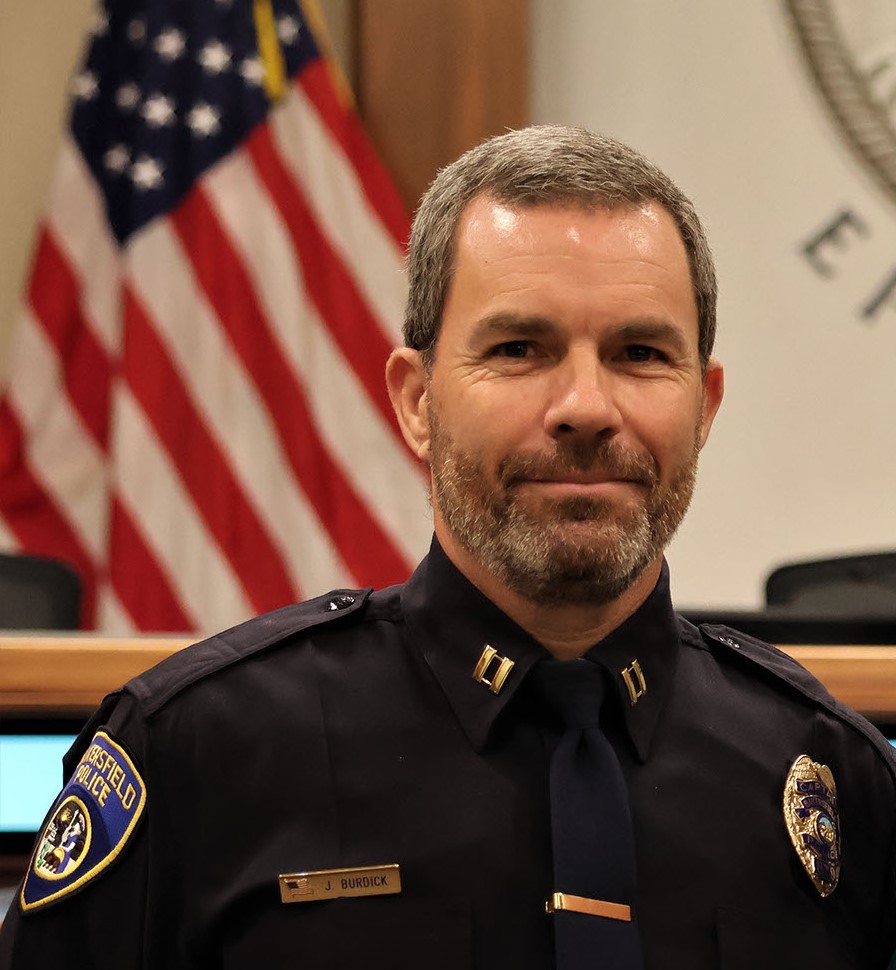 Jeff Burdick
Jeff Burdick  David Kessler
David Kessler Collaborative efforts play a pivotal role in mobile crisis response, providing a partnership that effectively handles crises concerning the behavioral health community. By engaging with field experts, these initiatives harness a wealth of knowledge and experience.
Pooling resources, expertise, and information through collaboration fosters more efficient and impactful responses. Leveraging mobile technologies enables instantaneous communication and coordination among responders, facilitating prompt decision-making and optimal resource allocation.
Through the sharing of data and cross-training with collaborative partners, the collective impact of crisis response endeavors is maximized. This ultimately results in saving lives, reducing the risk of harm, and diverting individuals from the judicial system towards a more supportive treatment approach.
Cross-training initiatives with collaborative partners further reinforce crisis de-escalation approaches, maximizing their impact in saving lives, reducing harm, and guiding individuals towards the appropriate treatment and support systems, instead of involvement in the judicial process.
Room: Grand Ballroom 7 (3)
Level: Intermediate
Track: Crisis Systems Transformation
 August 27, 2024 12:30 pm - 2:00 pm
August 27, 2024 12:30 pm - 2:00 pmOfficer Down Needs Assistance
 Mark DiBona
Mark DiBona In this workshop, Sgt. Mark DiBona (Ret) will speak about the importance of seeking assistance for mental health issues that affect your career, personal life and relationships. The workshop will also include Mark's personal story of mental health illness and his suicide attempt, and the challenges Mark experienced continuing his career after his suicide attempt.
Room: Grand Ballroom 9 (3)
Level: Beginner
Track: CIT Wellness
 August 27, 2024 12:30 pm - 2:00 pm
August 27, 2024 12:30 pm - 2:00 pmPatient Not Prisoner: How Crisis Intervention Teams Have Saved My Life
 Melissa Owens
Melissa Owens Melissa has been successfully living with bipolar disorder for over twenty-three years, and has benefited from CIT services during six different occasions where she was in the midst of serious psychotic episodes.
CIT International recognized Melissa’s work by awarding her the Fred Frese “Person With Lived Experience Award” at the CIT International Conference in 2023. Through her work with her “Patient Not Prisoner” program, Melissa aims to reduce the number of individuals with mental illness from entering the criminal justice system.
In addition to learning about her personal story and descriptions of various encounters with law enforcement, Melissa shares with attendees a video taken while she was experiencing a psychotic episode, and then leads a discussion on how interactions with law enforcement impacted her symptoms and behaviors.
This is an extremely rare opportunity to compare and contrast the behaviors, thought patterns, and characteristics of a person in severe crisis to the same features in the person presenting, who is completely stable, high-functioning, and living a happy, well-rounded life.
There will be ample time for a question and answer session so that attendees can ask probing questions and receive frank and honest answers from an individual with first hand-experience interacting with CIT for over two decades."
Room: White River A/B (1)
Level: Beginner
Track: CIT Programming
 August 27, 2024 12:30 pm - 2:00 pm
August 27, 2024 12:30 pm - 2:00 pmKnow.Talk.Ask. A Hopeful Approach to Suicide Prevention
 Lori Wood
Lori Wood There has been a dramatic rise in suicidal ideation and attempts among adolescents and young adults. In this session participants will learn how to recognize the risk factors and warning signs of suicide as well as how to help build and recognize protective factors. Participants will learn how to talk with youth at risk, and gain an understanding of suicide prevention, intervention, and postvention. There will be discussion of practical strategies to use with at-risk youth, as well as ideas to use for suicide prevention and intervention in the community at large.
Room: Grand Ballroom 8 (3)
Level: Beginner
Track: CIT Programming
 August 27, 2024 12:30 pm - 2:00 pm
August 27, 2024 12:30 pm - 2:00 pmEnhancing Crisis Intervention Skills with Simulation Technology
 Andrew Domzalski
Andrew Domzalski Course Description: This course explores the integration of simulation technology into crisis intervention training for law enforcement personnel. Participants will learn how simulations enhance decision-making, de-escalation techniques, and community relations in crisis situations. Practical exercises and case studies will demonstrate the application of simulation technology in real-world scenarios.
Room: White River G/H (1)
Level: Intermediate
Track: CIT Programming
 August 27, 2024 12:30 pm - 2:00 pm
August 27, 2024 12:30 pm - 2:00 pmNew Jersey’s Co-Responder Model: ARRIVE Together
 Joseph Cuffari
Joseph Cuffari  Joseph Haber
Joseph Haber 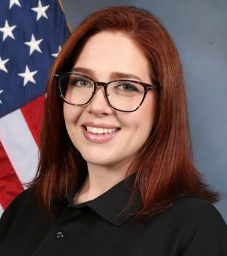 Amy Holmes
Amy Holmes Enacted in 1989, the NJ Screening Law is designed to provide screening and crisis stabilization services, 24 hours per day, 365 days per year, in every geographic area in the State of New Jersey. These services may be provided at a designated screening location or wherever the individual who may be in need of such services is located. The mode of stabilization will depend on the seriousness of the impairment, degree of potential dangerousness and the availability of appropriate services. The locus of treatment will be as close to the individual's home as circumstances permit.
New Jersey’s ARRIVE Together (Alternative Responses to Reduce Instances of Violence and Escalation) is improving how law enforcement responds to those experiencing mental and behavioral health emergencies, while reducing use of force. When celebrating ARRIVE Together, New Jersey Governor Phil Murphy recently said, “At a time when leaders across America are grappling with fundamental questions about the future of our justice system, here in New Jersey, we have illuminated a path forward that other states would be wise to follow.” The renowned Brookings Institution proposes that New Jersey’s ARRIVE Together “could reform policing as we know it.” Attend this learning session to learn about how ARRIVE Together evolved from a co-responder pilot program to a statewide initiative in just two years! Find out which key elements contribute to the success of this program to date, as well as how some of the successful features could be applied to response models in other jurisdictions.
Room: White River E (1)
Level: Intermediate
Track: State Crisis Response
 August 27, 2024 12:30 pm - 2:00 pm
August 27, 2024 12:30 pm - 2:00 pmSo, You Want to Teach Law Enforcement... Excelling as a Civilian Instructor.
 Habsi Kaba
Habsi Kaba More than ever, civilians in related fields, including those with lived experience, are serving as subject-matter experts in a first responder classroom setting. This workshop is designed to help civilians excel as CIT instructors. Whether you're already teaching or plan to teach first responders, it is crucial to understand police culture to relate, connect, communicate, and even make life-long connections. Through the lens of a 20-year regional CIT program coordinator, master instructor, and licensed marriage and family therapist in Miami-Dade County, Habsi will walk you through her eye-opening story of struggles, valuable lessons, life-changing experiences, and how she excelled in her role by allowing first responders to become her greatest teachers. Come join this session and explore a myriad of experiences and lessons that can serve and empower you on your own journey as a civilian instructor in a world of first responders.
Room: White River I/J (1)
Level: Beginner
Track: CIT Programming
 August 27, 2024 12:30 pm - 2:00 pm
August 27, 2024 12:30 pm - 2:00 pmEvidence-Based Crisis Intervention: A Multi-Dimensional, Behaviour-Responsive Guide
 Benni Zaiser
Benni Zaiser This session introduces an evidence-based, integrated framework designed to equip responders with the tools to engage more effectively with persons in crisis, from the initial assessment through to problem-solving. It moves beyond conventional methods by offering a tailored approach that considers specific behavioural presentations in conjunction with the situational dynamics they play out within. Its corresponding action recommendations guide responders in making informed decisions that are more responsive to both the individual as well as the specific individual context of their crisis.
As basic crisis intervention principles become a standard component of police training, this multidimensional guide represents the next step in its evolution. Based on latest research, it empowers responders to address the granular needs of individuals experiencing mental health crisis more responsively, enhancing the effectiveness of interventions with newfound precision and efficacy. Interactive in nature, the session invites participants to actively engage with the framework, fostering a collaborative exploration of its application and potential to reshape crisis intervention practices.
Room: 101/102 (1)
Level: Advanced
Track: Data/Research
 August 27, 2024 12:30 pm - 2:00 pm
August 27, 2024 12:30 pm - 2:00 pmSensory Implications when working with persons in crisis with developmental disabilities
 Yolanda Cruz
Yolanda Cruz 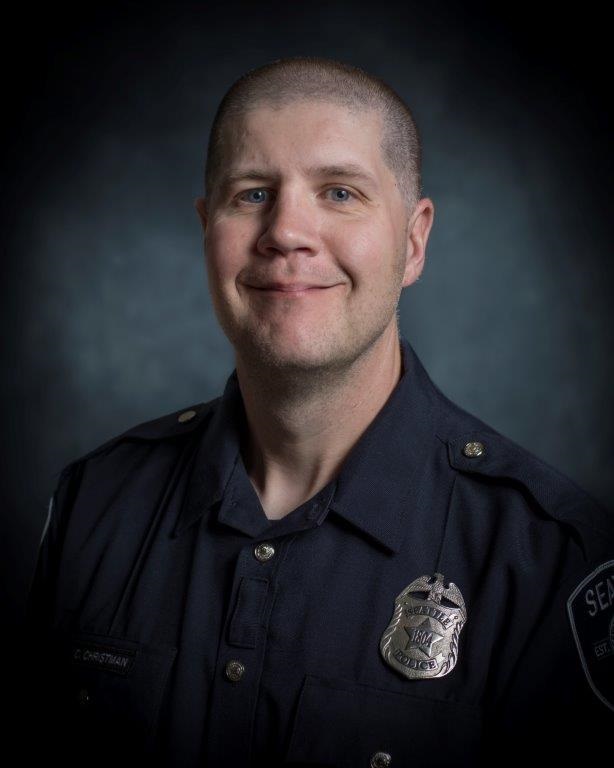 Christopher Christman
Christopher Christman  Anne LaFarce
Anne LaFarce This workshop will provide participants with information on the sensory dysfunctions that can impact a person with intellectual and developmental disabilities that are in crisis.
Room: 103/104 (1)
Level: Intermediate
Track: IDD
 August 27, 2024 12:30 pm - 2:00 pm
August 27, 2024 12:30 pm - 2:00 pmEnsuring the Military-Connected Don’t Fight Their Demons Alone - Standing on Common Ground
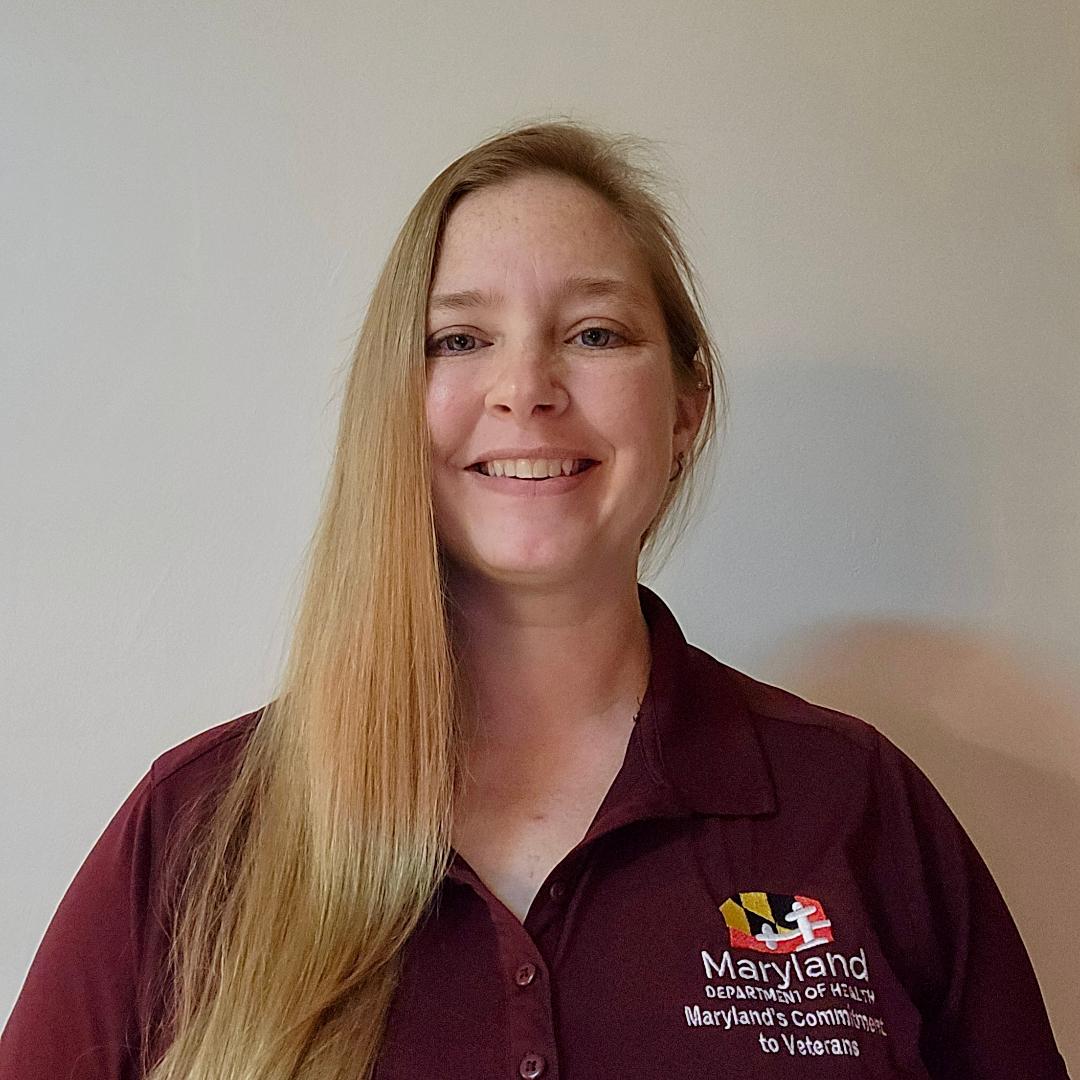 Hannah Rodriguez
Hannah Rodriguez  Jennifer Spieth
Jennifer Spieth The military connected population has one of the highest rates of behavioral health challenges but one of the lowest rates of help-seeking behavior. And with over 67% of the U.S. population being military-connected there is a significant chance of encountering this population during a behavioral health crisis in the community. This population has additional challenges due to the possibility of multiple, traumatic events, combat instincts and internalized stigma. This presentation will cover the basics of military culture and how it shapes perceptions and reactions even years after service, how extending a professional courtesy (after all, police and military aren’t all that different) while still enforcing the law can make a positive difference. Participants will leave with recommendations on how to effectively and safely engage with this population to encourage help-seeking behavior and reduce repeat calls.
Room: Grand Ballroom 10 (3)
Level: Intermediate
Track: CIT Programming
 August 27, 2024 12:30 pm - 2:00 pm
August 27, 2024 12:30 pm - 2:00 pmCanines in the Fast Lane: From New Jersey to Indiana to Rome.
 Edward Dobleman
Edward Dobleman  Janice Campbell
Janice Campbell  Kimble Richardson
Kimble Richardson 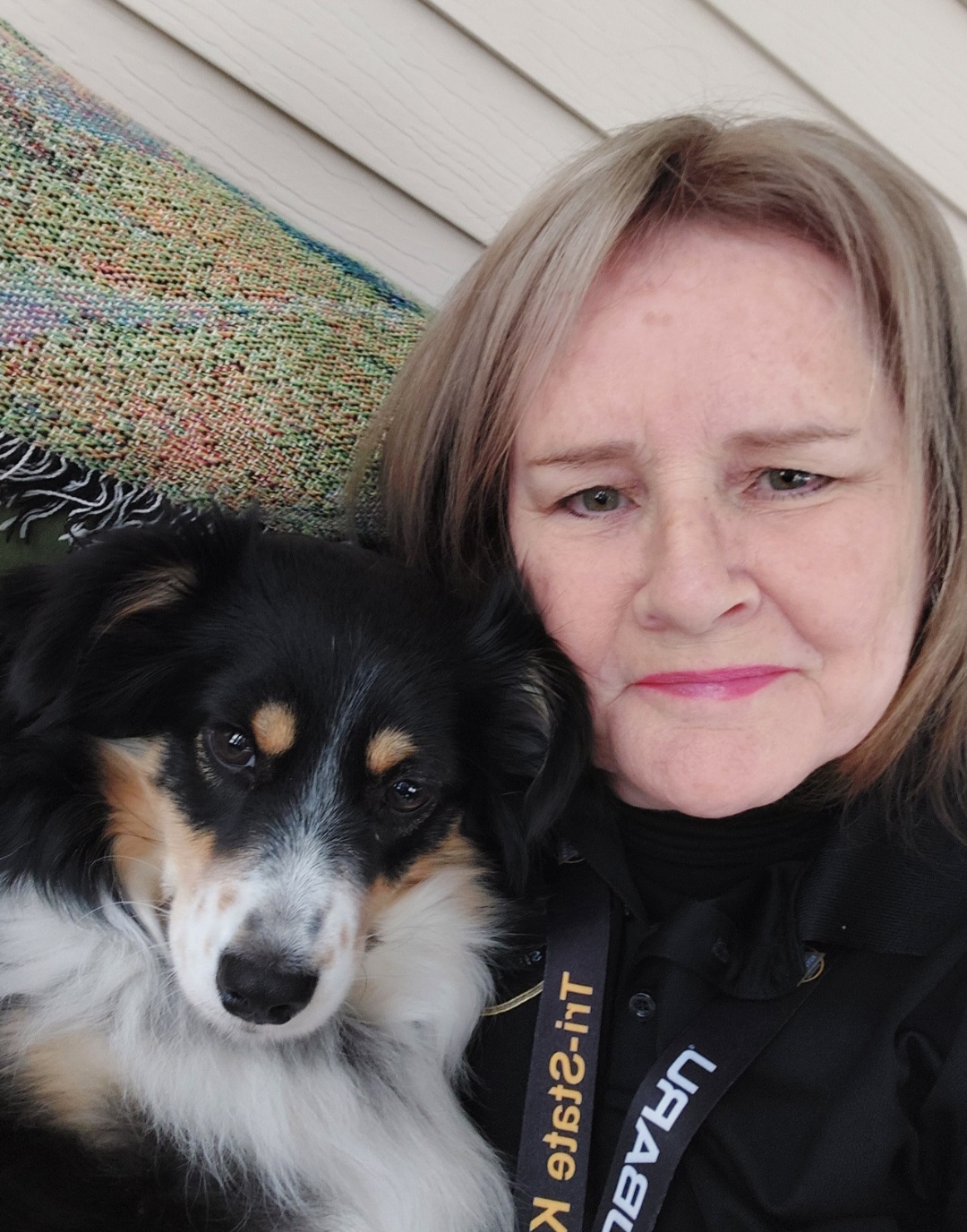 Marge Inscho
Marge Inscho After 9/11/2001, a new era for utilizing therapy dogs was created in the US. Since 2015, Tri-State Canine Response Team has responded throughout the US to over 18 mass causality events (including Pulse Nightclub in Orlando, FL, Mandalay Bay in Las Vegas, NV, Marjorie Stoneman Douglas High School in Parkland, FL, Robb Elementary School in Uvalde, TX, and the 10th anniversary of Sandy Hook Elementary School shooting in Newtown, CT). Tri-State Canine Response Team dogs are trained to recognize mild, moderate, and severe emotional disturbance and provide a stabilizing presence that helps facilitate normal coping. Interactions between handlers and their trained dogs aid those in crisis and facilitate recovery and resilience. Working with a variety of Critical Incident Stress Management (CISM) teams, they provide supportive interventions during individual crises, informational and interactive groups, and memorial services. In 2021, a CIT training in New Jersey connected Tri-State to the FedEx incident in Indianapolis, IN. The friendship and bonds that developed during that mission lead to co-presentations at the World Congress on Stress, Trauma, and Resilience in Baltimore, MD and eventually to the World Congress on Supporting High Impact Organizations in Roma, Italy in 2023. CIT-NJ, Tri-State, and Indianapolis CISM team collaboration will highlight the specific support and interventions that took place at the FedEx Mass Casualty Incident.
Room: White River F (1)
Level: Beginner
Track: CIT Programming
 August 27, 2024 12:30 pm - 2:00 pm
August 27, 2024 12:30 pm - 2:00 pmEngaging and Building Relationships: Working Respectively and Effectively with LGBTQIA+ Persons
 Jeanette Borunda
Jeanette Borunda This training will provide an overview of the needs and concerns of LGBTQIA Persons in our nation and across continents, especially as they relate to interactions with law enforcement. Topics covered will include terminology, professional communication skills, practical ways to apply knowledge, applications of professional ethics, microaggressions, and resources for learning more. The training will include small and large group discussions and case studies.
Room: White River C/D (1)
Level: Beginner
Track: CIT Programming
 August 27, 2024 2:30 pm - 3:30 pm
August 27, 2024 2:30 pm - 3:30 pmLeveling up your CIT program evaluation: Strategies from 20 years of CIT research
 Amy Watson
Amy Watson  Michael Compton
Michael Compton  Elizabeth Jackson
Elizabeth Jackson  En Fu
En Fu Evaluation and research are sustaining core elements of CIT programs. The goals of CIT programs include improving response to people experiencing mental health crisis, increasing linkages to care, and reducing the criminal legal system involvement of people with serious mental illnesses. But how do you know if your program is meeting its goals? And what if it is not impacting the outcomes of interest? In this presentation, we will discuss the importance of evaluating your CIT program for program improvement and sustainability. We will describe approaches to working with program partners to identify measurable program goals, activities and outcomes and developing a rigorous evaluation plan. Basic evaluation approaches that provide useful information about program operation and outcomes will be covered, as well as more advanced quasi-experimental and experimental methods to increase evaluation rigor. Presenters will provide examples from their work studying CIT programs over the past 20 years that include qualitative, quantitative, quasi-experimental and experimental (randomized controlled trial) methods. Sharing evaluation findings by publishing in peer reviewed journals will also be discussed.
Room: Grand Ballroom 8 (3)
Level: Intermediate
Track: Data/Research
 August 27, 2024 2:30 pm - 3:30 pm
August 27, 2024 2:30 pm - 3:30 pmExpanding mobile crisis services through partnership, and integration with 9-1-1 and 9-8-8 systems.
 Melanie Rhodes
Melanie Rhodes 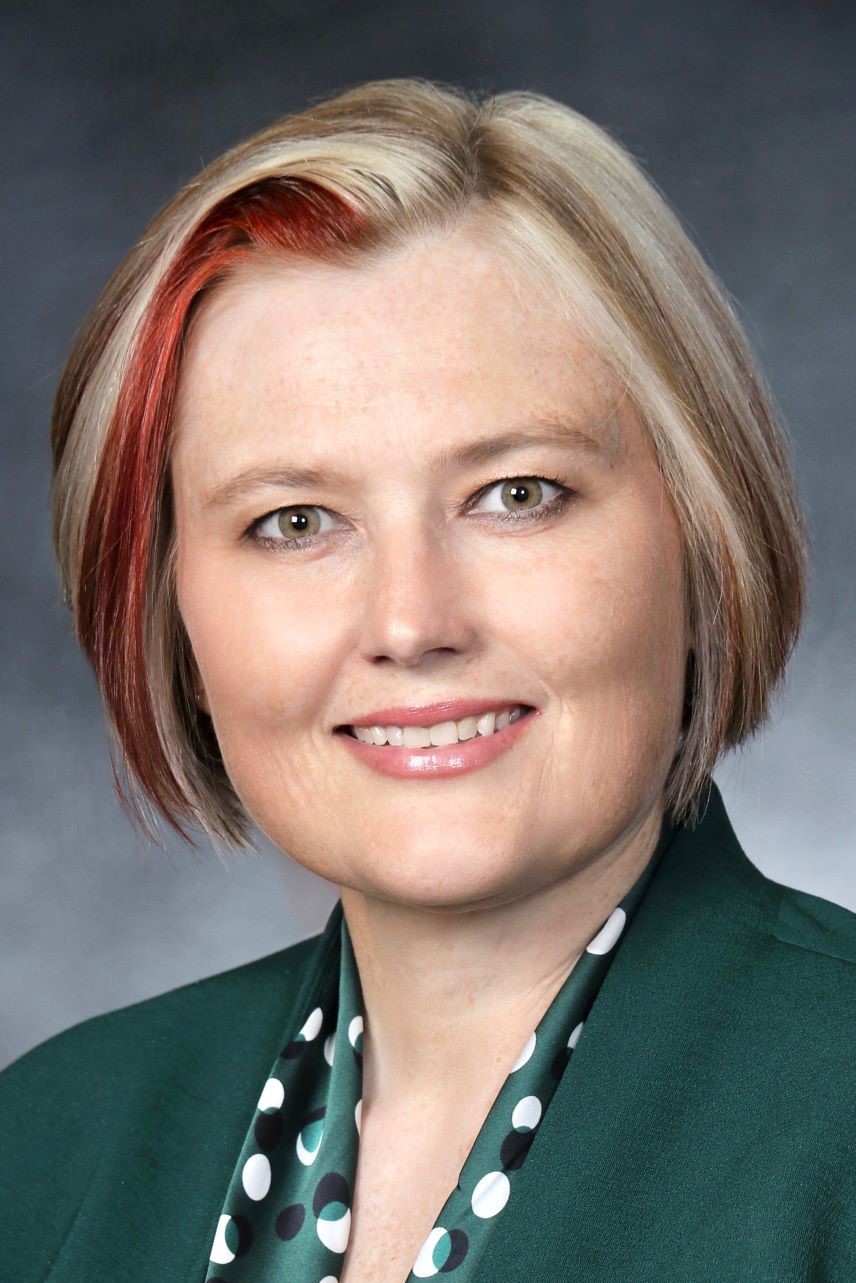 Lee Ann Magoski
Lee Ann Magoski National Guidelines for Behavioral Health Crisis Care (SAMHSA) states, “Crisis services are for anyone, anywhere and anytime. Crisis services include (1) crisis lines accepting all calls and dispatching support based on the assessed need of the caller, (2) mobile crisis teams dispatched to wherever the need is in the community (not hospital emergency departments) and (3) crisis receiving and stabilization facilities that serve everyone that comes through their doors from all referral sources.”
While many areas of California and the country have had mobile crisis services operating in some form for several years, providing these services 24/7 in keeping with best practices has been challenging. The definitive shift away from co-responder models pairing CIT trained law enforcement officers with mental health clinicians, and requirements for mobile crisis response independent of law enforcement have raised concerns regarding staff safety.
On July 16, 2022, the 988 Lifeline transitioned away from the National Suicide Prevention Line reached through a 10-digit number to the three-digit 988 Lifeline. Also in 2022, in California the “Miles Hall Lifeline Act” (AB 988) was signed into law putting California on a path towards interoperability between and across 9-1-1 and 988 systems and integration with county behavioral health systems for mobile crisis response.
While a “no-wrong-door” integrated crisis system is the overarching goal, the question is how to breakdown the silos and build the necessary bridges to truly get there. This workshop explores efforts at that and examines some key features of mobile crisis response, 988 and 9-1-1 interactions."
Room: White River A/B (1)
Level: Beginner
Track: 911/988
 August 27, 2024 2:30 pm - 3:30 pm
August 27, 2024 2:30 pm - 3:30 pmThe Power of Rural Crisis Partnerships: How to Make a Difference
 Tina-Marie Brown
Tina-Marie Brown  Michelle Grigsby-Hackett
Michelle Grigsby-Hackett More than 60% of Americans who live in rural America live in an area that has a mental health provider shortage. The challenge is to make crisis services accessible. By creating a continuum of crisis services and partnering with other community services you can fill the gaps and help consumers access the mental health services they need. CIT and Law Enforcement partnerships are an essential part of the crisis continuum. Developing these partnerships helps ensure that individuals who suffer from mental illness receive the care that they need while increasing the safety of the community. Effective partnerships go beyond helping those who are in a behavioral health crisis, they make a difference in their communities.
Room: 103/104 (1)
Level: Beginner
Track: CIT Programming
 August 27, 2024 2:30 pm - 3:30 pm
August 27, 2024 2:30 pm - 3:30 pm“I’ve been there”: Utilization of Family Peers to Increase Diversion of Youth
 Brigitte Kealy
Brigitte Kealy  Kathryn Dilley
Kathryn Dilley 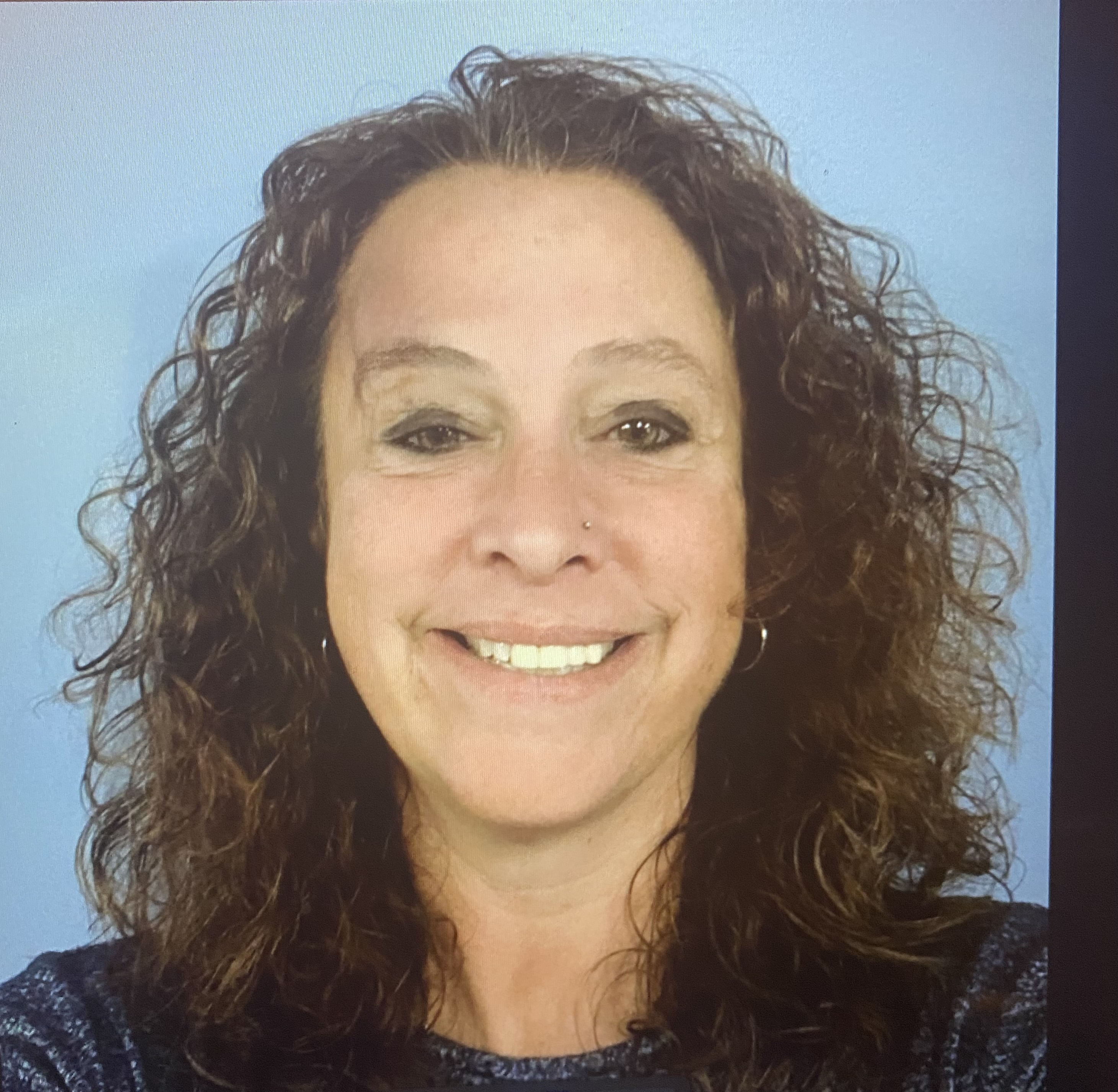 Megan Saulsbury
Megan Saulsbury Mobile Response Stabilization Services (MRSS) is an evidence-based model of care for children, youth, and their families. MRSS pairs a behavioral health clinician with a Family Peer Recovery Specialist to support families with crisis de-escalation strategies, short-term stabilization, and strategic coaching to prevent and diffuse future crises. This workshop will explore the unique qualifications of Family Peer Support Specialists to assist in the diversion of youth and their families from higher levels of care, and more costly and intrusive interventions. Together, we will examine the benefits that Family Peer Support Specialists provide to individual youth and families, crisis response programs, and to the broader community systems including law enforcement, first responders, emergency departments, and schools.
Room: Grand Ballroom 10 (3)
Level: Beginner
Track: CIT Programming
 August 27, 2024 2:30 pm - 3:30 pm
August 27, 2024 2:30 pm - 3:30 pmImplementing a CIT for Corrections
 Kailee Evans
Kailee Evans  Ridg Medford
Ridg Medford The High Desert CIT in Ontario, Oregon, has implemented a model and curriculum for a Corrections-based CIT over the last nine years. Over 200 Corrections professionals have become part of CIT. We have had many departments and states reach out to us with questions about how this was done, and we would love to be available to share how we developed this model and what we have learned along the way. This is the first Corrections-based CIT in Oregon, and we will share what we have learned and provide connection and support to other teams hoping to implement similar models. We offer a model for corrections only and hybrid model that includes corrections and local law enforcement together.
Room: 101/102 (1)
Level: Beginner
Track: CIT Programming
 August 27, 2024 2:30 pm - 3:30 pm
August 27, 2024 2:30 pm - 3:30 pmOnboarding Dispatch and EMS to CIT Training and Committee Membership
 Kari Key, ENP
Kari Key, ENP  Kimble Richardson, M.S., LMHC, LCSW, LMFT, LCAC
Kimble Richardson, M.S., LMHC, LCSW, LMFT, LCAC  Eric Yazel, M.D.
Eric Yazel, M.D. This workshop will be led by the Indiana State EMS Medical Director, a 911 dispatcher/CIT Certified Coordinator, and a licensed mental health professional with close to 40 years of experience working with first responders. While the original target audience for education and collaboration was professional law enforcement, over the past several years CIT has extended training seats and committee membership to include 911 dispatch professionals and EMS providers. The three presenters will guide attendees through the initial education of dispatch and EMS leadership (“the pitch”), to the verbiage of training invitations, and ultimately to committee membership. Information will be shared on how to secure current CIT committee buy-in, how to educate dispatch/EMS about the etiology and philosophy of CIT, negotiate the amount of available training seats for dispatch/EMS, redesign training materials to be more inclusive of dispatch and EMS scenarios, and how to vet potential committee members. Efforts to secure state legislated funding specifically for EMS wellness initiatives will be discussed.
Room: Grand Ballroom 7 (3)
Level: Intermediate
Track: CIT Programming
 August 27, 2024 2:30 pm - 3:30 pm
August 27, 2024 2:30 pm - 3:30 pmWorking Collaboratively with Law Enforcement
 Bill Baker
Bill Baker Effective crisis response requires a team approach. Implementing the Crisis Intervention Program requires partners from different disciplines to work collaboratively to respond to dis-regulated individuals. To work in partnership, mobile crisis responders, peers and mental health professionals, should have a basic understanding of the training, policies, and responsibilities that guide officers' actions in the field. Conflict can arise when those looking to work in partnership with police officers, do not understand the requirements that guide officers' actions. This workshop will provide an overview of the training, SOPs, and deeply engrained approaches that govern officers' responses.
Room: Grand Ballroom 9 (3)
Level: Beginner
Track: Crisis Systems Transformation
 August 27, 2024 2:30 pm - 3:30 pm
August 27, 2024 2:30 pm - 3:30 pmFBI's Responders' Wellness and Resiliency Documentary
 John Skillestad
John Skillestad The FBI's Office of Partner Engagement, Violence Reduction Unit (VRU) produced a documentary on responders’ wellness and resiliency after mass-shooting/active shooter (AS) incidents. The production is backdropped against the Pulse Nightclub AS incident in Orlando, FL and the AS incident at the Route 91 Harvest Music Festival in Las Vegas, NV. Interviews of law enforcement officers, 911 dispatchers, Fire/EMS personnel, trauma surgeons, and other responders to these incidents, as well as SMEs in the field of officer wellness and resiliency were conducted. The purpose of this work is to bring awareness to the importance of responders' wellness and resiliency after these tragic incidents, to reduce the stigma associated with seeking help, and to provide examples of resources available to help those affected achieve a new normal so they can continue to be of value and effective public safety servants to their communities and provide stability to their personal lives.
Room: White River G/H (1)
Level: Intermediate
Track: CIT Wellness
 August 27, 2024 2:30 pm - 3:30 pm
August 27, 2024 2:30 pm - 3:30 pmHidden Figures: Can One CIT Coordinator Really Make a Difference?
 Sabrina Taylor
Sabrina Taylor Sometimes, we get overwhelmed by the magnitude of the mental health system and despair of our ability to make a difference. We are tempted to view our efforts as fleeting, insignificant, and too small to affect the world. It is a worry that even the most resolute and hopeful among us have. But the truth is that one person can make a difference. This presentation will narrow our field of vision and zoom in to a less overwhelming perspective, a micro-vision of system change. It will look at how one person can apply their particular skills to an issue and plant a seed that grows into real system-level change. We will discuss how grassroots movements operate in our political system, what conditions generally improve our chances of having a larger influence, and some tangible takeaways that can be immediately applied. Most of all, the purpose of this presentation is to encourage everyone in the audience that their contributions can be significant.
Room: White River E (1)
Level: Intermediate
Track: Crisis Systems Transformation
 August 27, 2024 2:30 pm - 3:30 pm
August 27, 2024 2:30 pm - 3:30 pmAlternate Response-Redefining Law Enforcement's Response to Our Unsheltered Population
 Melissa Ripley
Melissa Ripley Introducing the Alternate Response Program! A Partnership between Lincoln Police Department and Centerpointe Street Outreach Team.
The Alternate Response Program is an innovative partnership, we've brought together the expertise of law enforcement professionals from the Lincoln Police Department and the compassionate outreach efforts of the Centerpointe Street Outreach Team. Together, we're redefining how we respond to calls for service involving our unsheltered neighbors. By doing so, we have cut the Emergency Protective Rate of our unsheltered population IN HALF! We have also saved valuable law enforcement time and have reduced our arrest rate of those experiencing homelessness.
Our street outreach team is trained to assess situations and provide appropriate resources that prioritize the well-being and dignity of individuals experiencing homelessness. Whether it's connecting someone with temporary shelter, providing access to essential resources, or offering support for mental health and addiction issues, we are sending the right people the first time and getting our unsheltered neighbors hooked up with the right resources.
Learn how to create the necessary partnerships within your own community and how to implement this program in your city!
Room: White River F (1)
Level: Intermediate
Track: De-Escalation
 August 27, 2024 2:30 pm - 3:30 pm
August 27, 2024 2:30 pm - 3:30 pmRecognizing and assessing dangerous people in order to keep yourself and your community safe
 Jeanette Borunda
Jeanette Borunda  Brian Peete
Brian Peete The majority of those suffering from mental illness are most likely to become victims of crime rather than perpetrators of it. But what happens you come face-to-face with those who may be diagnosable under Anti-Social Personality Disorder or Conduct Disorder? As first responders, co-responders, and mental health professionals, it is a matter of "when" and not "if." This workshop will provide attendees with practical information on recognizing and assessing those who are the most dangerous in your communities, and provide you with intervention solutions on how to keep yourself and your community safe.
Room: White River C/D (1)
Level: Intermediate
Track: CIT Programming
 August 27, 2024 2:30 pm - 3:30 pm
August 27, 2024 2:30 pm - 3:30 pmEnhancing Mental Health Services: Exploring Oklahoma's Comprehensive Crisis Continuum
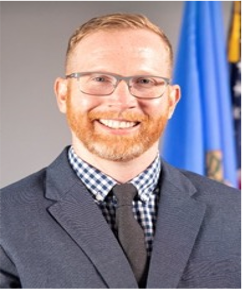 Tony Stelter
Tony Stelter 
Dedra Hansboro
This presentation aims to shed light on Oklahoma’s Comprehensive Crisis Continuum, a comprehensive approach to addressing mental health crises in the state. Attendees will gain insights into the continuum’s structure, objectives, and the collaborative efforts involved in providing effective crisis intervention services. Through case studies and statistical data, we will explore the impact of this continuum on individuals experiencing mental health crises and the broader community. Furthermore, we will discuss challenges, successes, and future directions for improving mental health services in Oklahoma.
Room: White River I/J (1)
Level: Beginner
Track: State Crisis Response
 August 27, 2024 4:00 pm - 5:00 pm
August 27, 2024 4:00 pm - 5:00 pm Bring CIT to Your Rural Scene, lessons learned
 Maria Johnson
Maria Johnson  Frank OHalloran
Frank OHalloran This workshop will provide navigation for the student to implement a full Crisis Intervention Team program in their rural county. Pinal County Arizona is the approximate size of Connecticut with only 12.5% of Connecticut’s population. Its square miles provide suburban, rural, remote, and frontier regions. It has 9 municipal police departments, along with federal, county, and tribal agencies. Mercy Care Regional Behavioral Health Authority and Horizon Health & Wellness teamed up with the various police departments along with the sheriff’s office and county prosecutor’s office and we have all implemented a complete five-legged stool CIT program where none had exited. We are now in year two and we have added partners to our collaboration, and we have lessons learned. We will provide the process we followed and the lessons we learned in establishing our CIT program in rural Pinal County Arizona.
Room: Grand Ballroom 10 (3)
Level: Beginner
Track: CIT Programming
 August 27, 2024 4:00 pm - 5:00 pm
August 27, 2024 4:00 pm - 5:00 pm Ethical Decision Making in Suicide Risk Assessments: Navigating Complexities with Confidence
 Carlos Martinez
Carlos Martinez This workshop is designed to enhance attendees’ skills in ethical decision-making within the context of suicide risk assessments. Aimed at professionals of crisis intervention, this session bridges the gap between theoretical ethical principles and practical application in high-stakes environments.
Attendees will review suicide risk assessment models, emphasizing ethical integration, and explore a structured ethical decision-making model. The workshop offers hands-on experience enabling participants to tackle risk assessments using a systematic approach. This immersive workshop encourages the practical application of concepts using case studies that emphasize critical thinking and ethical clarity.
This workshop underscores the importance of compassion, understanding, and ethical consideration in crisis intervention. After completing this session, attendees will be equipped to make informed and compassionate decisions, reflecting on the best practices in crisis response, ethical standards, and increase their skills that can improve outcomes for individuals in crisis and enhance professional integrity.
Room: 101/102 (1)
Level: Intermediate
Track: CIT Programming
 August 27, 2024 4:00 pm - 5:00 pm
August 27, 2024 4:00 pm - 5:00 pm “Coffee with Joe” - a Neighborhood CIT Officers Meeting of Peer Support
 Joe Carlson
Joe Carlson  John Williams
John Williams  Mark Benson
Mark Benson  John Keigher
John Keigher Crisis intervention officers now find themselves in a unique position within the law enforcement community where they must balance their role as sworn law enforcement while at the same time being asked to wade into the realm of mental health and responsive policies. This creates a unique set of personal experiences and stress for the CIT officer that can be relieved by the support of a community of peers.
Officer Joe Carlson, a veteran CIT officer and trainer for the Illinois Law Enforcement Training & Standards Board recently obtained a master’s degree and licensure in social work. He has developed a regional community of CIT officers and hosts monthly meetings to provide a forum for open dialogue. Each meeting is conducted in two parts: the first hour focuses on officer feedback and wellness while the second is focused on discussions with area social service agencies and specialized providers.
By utilizing a peer support aspect, officers can share their positive and negative experiences freely and collaborate with others across jurisdictions. Participants also learn about new social services directly from their local providers and can discuss recent developments. These meetings have already proven to be helpful in coordinating responses to the social challenges that arise when communities rapidly expand and services are reduced.
Officer Carlson will discuss how he started the program, the several success stories it has produced, and the lessons he learned along the way that have strengthened several CIT programs already.
Room: Grand Ballroom 8 (3)
Level: Intermediate
Track: CIT Programming
 August 27, 2024 4:00 pm - 5:00 pm
August 27, 2024 4:00 pm - 5:00 pm Creating Officer Engagement Through Hands-On Learning
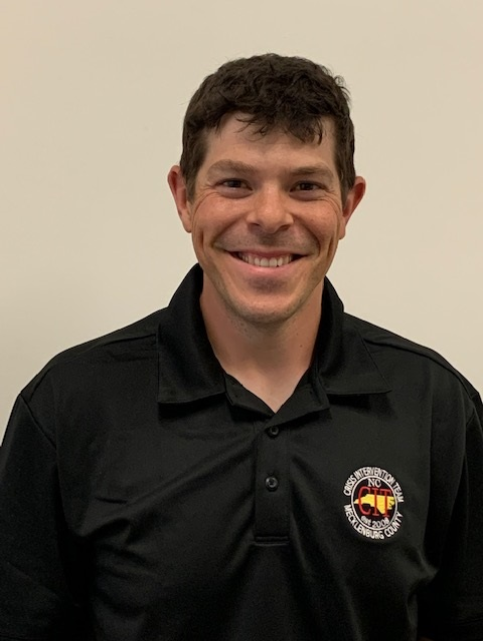 John Osborn
John Osborn  Johanna Covault
Johanna Covault  Chasity Lambert
Chasity Lambert Have you ever found yourself looking out at a series of checked out faces and phone checking during your CIT training? Most first responders are used to spending their time moving and not sitting through classroom material; consequently, it can be difficult to hold their attention for 40 hours in a classroom setting. Even if your CIT training has the best material available it won’t matter if it is not engaging the participants in a way that holds their attention. This workshop focuses on why it is essential to learn about learning styles and the importance of engaging all of them, especially hands-on learning.
When we ask our officers at the beginning of class a majority of them will say they are hands-on learners. However, classroom material can lack the needed opportunities that allow for the material to become relevant to hands-on learners. This workshop will discuss general concepts utilized to engage all the learning styles as well as review and demonstrate activities and tools utilized to promote hands on learning.
Utilizing a variety of learning methods during the classroom not only provides opportunities for all different types of learning style but creates a more dynamic and fun training environment that results in engagement with the subject matter and genuine discussion about the training topics. Join us to learn about, demonstrate, and share interesting ideas to create officer engagement through hands-on learning."
Room: Grand Ballroom 9 (3)
Level: Beginner
Track: CIT Programming
 August 27, 2024 4:00 pm - 5:00 pm
August 27, 2024 4:00 pm - 5:00 pm “Help! I need somebody!” The value of partnerships in crisis response – E3 Initiative.
 Mario Reid
Mario Reid  Charlotte Critchfield
Charlotte Critchfield  Joshua Brewer
Joshua Brewer  Savannah Wood
Savannah Wood The E3 Initiative is an innovative CIT and community collaboration based on best practices from the evolution of a multi-year partnership between the Vanderburgh County CIT Steering Committee, Evansville-Vanderburgh Commission on Homelessness, Evansville Police Department, Southwestern Behavioral Healthcare, and ECHO Housing Corporation.
The E3 Initiative educates individuals on accessing resources, and encourages healthy decision-making through restorative justice with the intent to address homelessness, mental illness, substance use and criminal activity. As a result of this initiative, there has been a significant reduction in the use of emergency services, decline in criminal activity among the population served, and increase in overall housing stability from individuals who previously experienced homelessness."
Room: White River E (1)
Level: Intermediate
Track: Crisis Systems Transformation
 August 27, 2024 4:00 pm - 5:00 pm
August 27, 2024 4:00 pm - 5:00 pm Demystifying Data for Crisis Programs
 Elizabeth Jones
Elizabeth Jones  Michelle Grigsby-Hackett
Michelle Grigsby-Hackett Data and reporting are crucial to determining the success of any program. Being able to track service utilization as well as key crisis metrics will help ensure community saturation and strategic growth and help ensure program success.
This presentation will discuss the importance of data gathering for crisis systems and will identify key concepts of data and reporting which focus on three main questions that illustrate a program's activity, utilization trends, and success. We will identify the four information intercept points and how to set up for success.
In addition, the presentation will identify some common challenges that crisis systems can encounter with data definitions, collection methods, data extrapolation, and consolidation and analysis. We will offer some practical methods and examples for addressing these challenges and methods for integrating the data processes within every step of the documentation and case review process to ensure the highest data integrity while respecting the need for effective, efficient documentation and ensuring that client care continues to stay in the forefront of service delivery.
Room: White River G/H (1)
Level: Intermediate
Track: Data/Research
 August 27, 2024 4:00 pm - 5:00 pm
August 27, 2024 4:00 pm - 5:00 pm Relief for Law Enforcement: How your community can use Mobile Teams as alternative response
 Michele Russell
Michele Russell  Elizabeth Jimenez
Elizabeth Jimenez  Sabrina Taylor
Sabrina Taylor Due to the conversations around 988 and national best practices, many communities are putting together programs for alternative responder or co-responder units. Many of these programs face challenges related to defining policies around safety, accessibility, and the interactivity between different organizations. In the Phoenix area, La Frontera EMPACT is a mental health provider with over 35 years’ experience that has partnered with the City of Phoenix Police Department (PPD) for more than 20 years to improve community response to people in crisis. The program has proven to be safe, valued by police and community, and a key employer of peer workers. It has grown and adapted over these many decades and continues to be a model for other programs. Through a collaborative effort with a broad base of community representatives, EMPACT and the Phoenix Police have faced numerous barriers and learned how to adjust the program to meet various challenges. Presenters from both EMPACT and PPD will briefly discuss these challenges and spend the majority of the time engaging the audience in discussion about the specific challenges they are facing in their unique communities.
Room: White River I/J (1)
Level: Intermediate
Track: Crisis Systems Transformation
 August 27, 2024 4:00 pm - 5:00 pm
August 27, 2024 4:00 pm - 5:00 pm Processing Grief Throughout a Career
 Edward Curtis
Edward Curtis  Lisa Zoll
Lisa Zoll 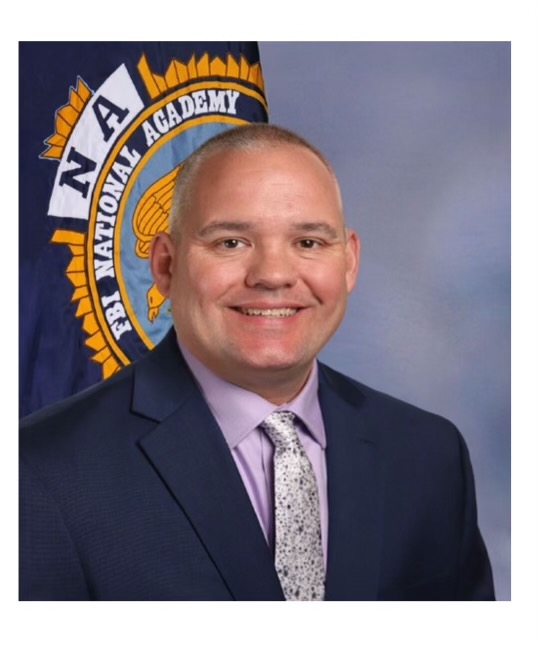 Brian Curtis
Brian Curtis This workshop will discuss how grief can manifest itself throughout a career in Human Services and as a First Responder. We can deal with people experiencing grief and helping them to process their grief and how to hold space for a person to express grief.
We will also talk about how we can experience a grief response throughout our career. This can include the experiencing trauma for the first time and the loss of innocence about human suffering. We also experience grief in time not spent with family. We can also experience grief during setbacks in our career. As we advance in our career, we can experience grief in not having the hands-on responsibilities we originally got the job to do. Lastly, we will talk about the grief associated with retirement and the loss of purpose that we have in human service professions and how to gain new purpose.
Room: 103/104 (1)
Level: Beginner
Track: CIT Wellness
 August 27, 2024 4:00 pm - 5:00 pm
August 27, 2024 4:00 pm - 5:00 pm Missouri Crisis Response Resources and CIT Collaboration
 Angie Plunkett
Angie Plunkett  Jason Klaus
Jason Klaus This workshop will provide an overview of crisis resources in Missouri, how the crisis resources align with SAMHSA's roadmap, and the collaboration efforts with local CIT first responders. The workshop will discuss 988, mobile crisis response, behavioral health crisis centers, community behavioral health liaisons, and co-responders. The workshop will also provide information on the initiative to conduct a Sequential Intercept Model (SIM) mapping in the 114 counties in Missouri and how local CIT councils are providing the avenue to address local gaps/priorities identified.
Room: Grand Ballroom 7 (3)
Level: Beginner
Track: State Crisis Response
 August 27, 2024 4:00 pm - 5:00 pm
August 27, 2024 4:00 pm - 5:00 pm "Drop the Rope!": Applying Risk vs Risk to Identify/Avoid/Defuse Power Struggles with Youth
 Jessica Michael
Jessica Michael  Michael Voorhis
Michael Voorhis This training is designed to teach participants how to apply the concept of "Risk vs Risk" to continually assess and evaluate all possible response options when faced with potential power struggles involving youth. Participants will learn how to identify if they are stuck in a power struggle and how to engage in decision-making that will result in the lowest level risk. Strategies to effectively "Drop the Rope" when facing conflict with youth in crisis will be explored, as well as other related crisis intervention tips & tricks for de-escalation, such as active listening and self-awareness. Large-group discussion will be utilized to identify potential triggers of power struggles, and to apply "Risk vs Risk" to real-life work scenarios. Importance of incorporating youth-related content into traditional CIT programming will also be discussed.
Room: White River C/D (1)
Level: Beginner
Track: De-Escalation
 August 27, 2024 4:00 pm - 5:00 pm
August 27, 2024 4:00 pm - 5:00 pm School is in Session: CIT in School Districts and Universities
 Nicole Pruss
Nicole Pruss  Chief Anthony Matos
Chief Anthony Matos The panel will bring together 2 Chiefs of Police that bring CIT to an educational setting (Austin Independent School District and James Madison University). They will discuss planning, buy-in, and partnerships. They will also discuss training and logistics that come with school settings. In addition, they will discuss special considerations for encounters with youth and young adults who are in a period of transition. The discussion will conclude with free COPS Office resources and grant opportunities. There will be time for questions at the end.
Room: White River A/B (1)
Level: Beginner
Track: CIT Programming
 August 27, 2024 4:00 pm - 5:00 pm
August 27, 2024 4:00 pm - 5:00 pm Indigenizing CIT in Indian Country: The Unifying Energy of the Whole Person and Community
 Mark Anderson
Mark Anderson  LeMoine LaPointe
LeMoine LaPointe This workshop for community, public safety and mental health, will explore BSFs approach to working with indigenous homeland and urban communities in Minnesota, South Dakota, North Dakota, Wisconsin, Nebraska, Montana and beyond, building on strengths and assets of each community to design and implement innovations. Participants will experience a Conversational Cycle we use in our work: 4 conversations, Discovery, Dream, Design and Delivery. The Discovery conversation, answers questions like: What are the physical and non-physical aspects of the individual that make up the whole person and provide insight into the recovery, healing and wellness journey? What knowledge and practices in your community's past can help guide your crisis response work now? What are the most prominent culturally based de-escalation, recovery and healing practices you use today in crisis response and self care?
Room: White River F (1)
Level: Intermediate
Track: Crisis Systems Transformation
 August 25, 2024 8:00 am - 5:00 pm
August 25, 2024 8:00 am - 5:00 pmContemplation Room
 Chaplain Daniel "Padre" Coffey
Chaplain Daniel "Padre" Coffey  Chaplain James Richard "Chap" Smith
Chaplain James Richard "Chap" Smith  Chaplain Richard "Chappy" Hartman
Chaplain Richard "Chappy" Hartman Like the Sensory Room, this will be a place where an attendee can find a quiet and serene place to reset their system. This room is set aside for spiritual and emotional wellbeing. The Contemplation Room will be staffed at periodic times by Chaplain Daniel “Padre” Coffey, Chaplain James Richard “Chap” Smith, and Chaplain Richard “Chappy” Hartman.
All three Chaplains are trained in CISM, Peer Support, and have many other certifications and trainings. They can provide attendees with any requested religious, spiritual, and emotional support. Our Chaplains are here to assist you in anyway possible.
Currently Chaplain Coffey will be available Monday, Tuesday morning and Wednesday. Chaplain Smith will be available Tuesday and Chaplain Hartman will be available on Wednesday.
When they are not attending the Contemplation Room, all of the Chaplains will be walking around the Conference space greeting and visiting with attendees. Make sure you tell him Hi!!!!
Room: Room 308
 August 28, 2024 10:00 am- 11:30 am
August 28, 2024 10:00 am- 11:30 am Autism Awareness
 Ronald Davis
Ronald Davis Autism awareness is derived from the 8hr IADLEST Nationally Certified Course of the same name. Whether you are a seasoned clinician or have no experience with autistic individuals, this class will provide you with invaluable information about the disorder, as well as identifying and communicating with subjects on the spectrum.
Room: White River A/B (1)
Level: Beginner
Track: IDD
 August 28, 2024 10:00 am- 11:30 am
August 28, 2024 10:00 am- 11:30 am Empowering our Minds: What can we do to reduce risk of Dementia and stress?
 Polly Westcott
Polly Westcott Heightened worry about dementia has increased in recent years as the Baby Boomer generation ages and individuals are living and working longer. This presentation will explore, define, and distinguish cognitive changes associated with normal aging, depression/stress, and dementia. Additionally, education will be provided regarding what individuals in high stress jobs can proactively do to increase their life span and brain health span while reducing the risk of dementia.
Room: White River C/D (1)
Level: Beginner
Track: CIT Wellness
 August 28, 2024 10:00 am- 11:30 am
August 28, 2024 10:00 am- 11:30 am (Q.P.R.) Question. Persuade. Refer. for CIT personal
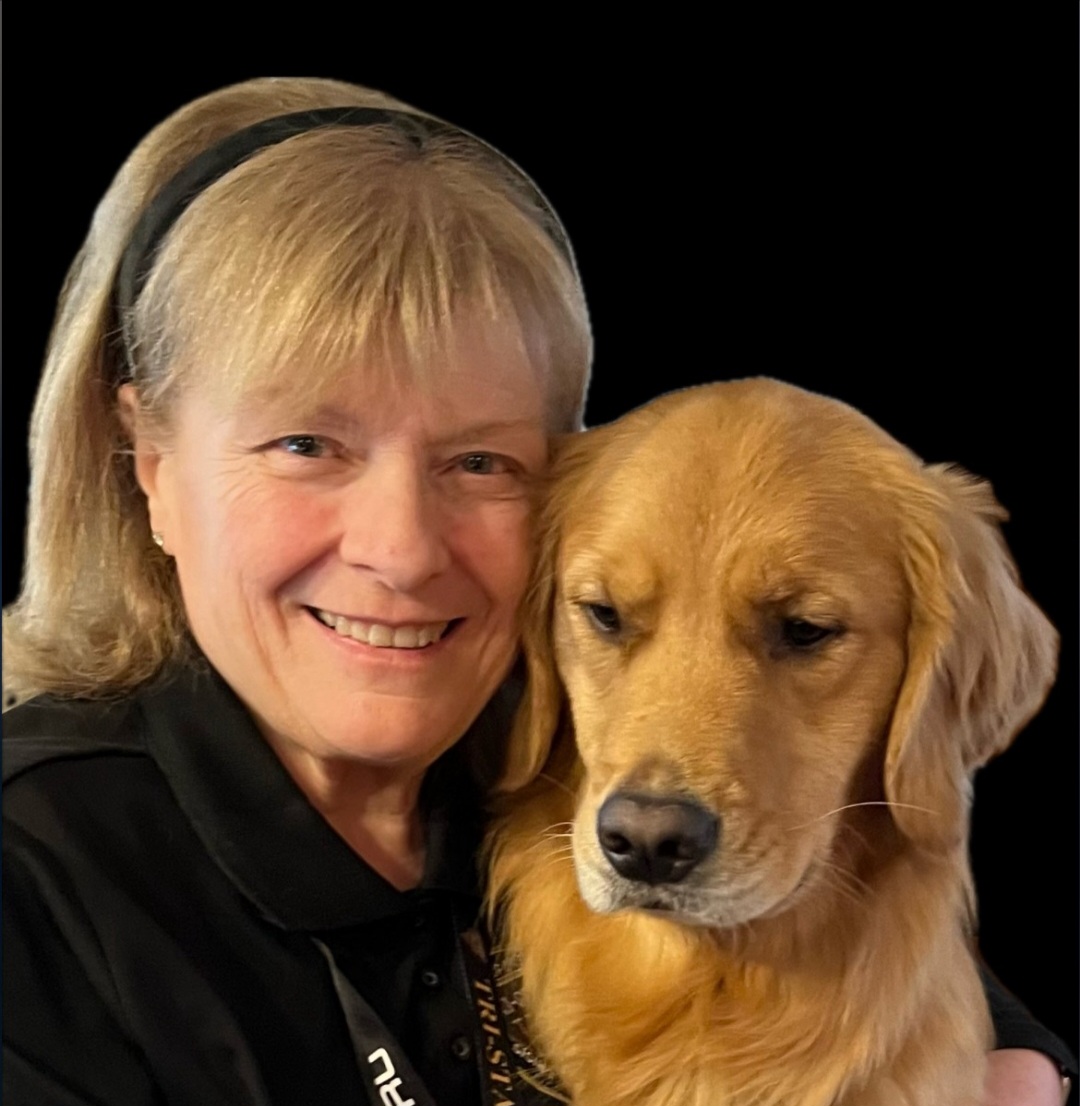 Janice Campbell
Janice Campbell  Pamela Bolden
Pamela Bolden 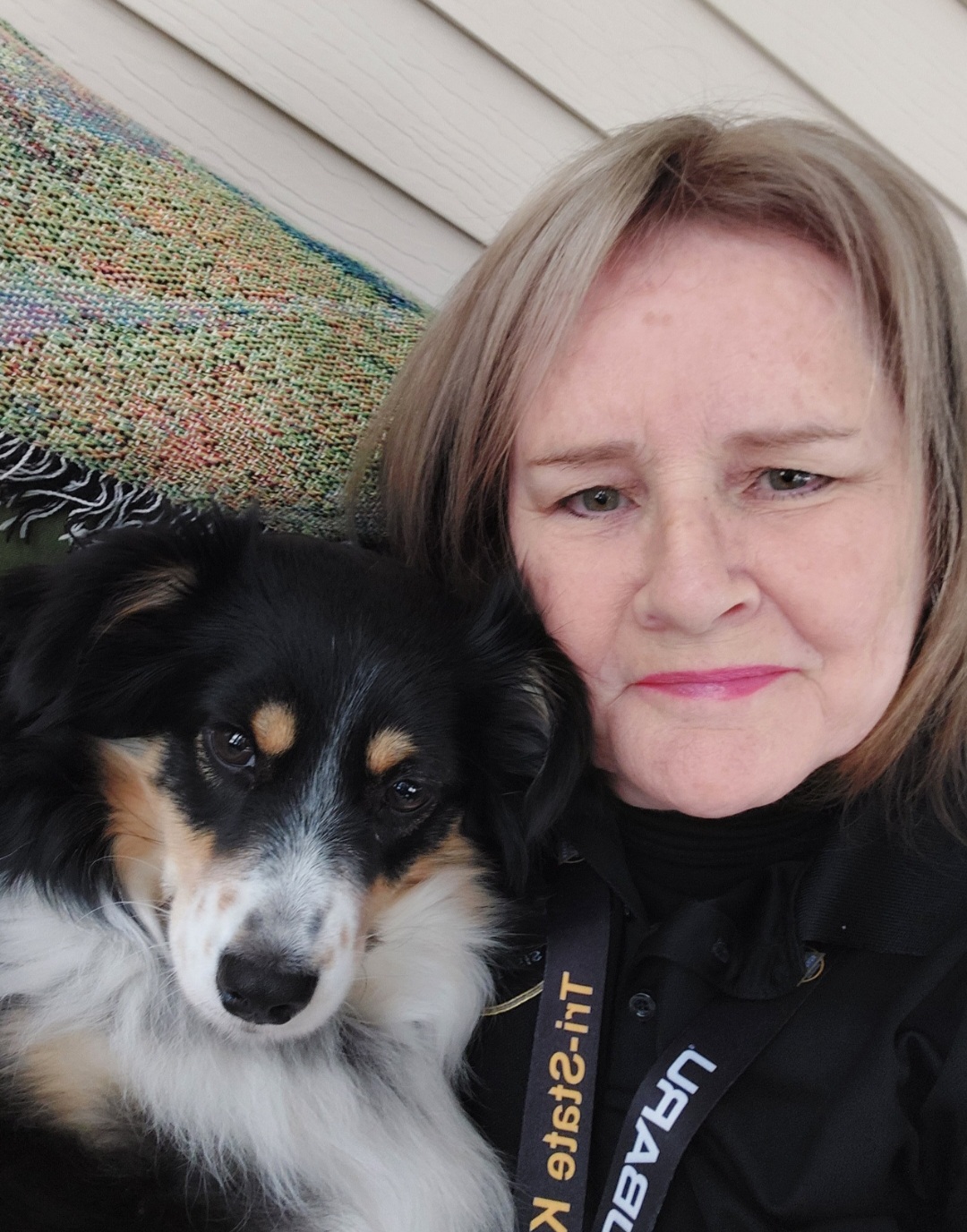 Marge Inscho
Marge Inscho QPR is an emergency response to someone in crisis and can save lives. It's the most widely taught training in the world and its mission is to reduce suicidal behaviors and save lives by providing innovative, practical and proven suicide prevention training. The signs of crisis are all around us. QPR training empowers all people, regardless of their background, to make a positive difference in the life of someone they know.
Tri-State Canine Response Team in-person, interactive presentation includes personal experiences. Fortunately those in attendance will have the support and comfort of our wonderful crisis response canines.
Room: White River E (1)
Level: Beginner
Track: CIT Programming
 August 28, 2024 10:00 am- 11:30 am
August 28, 2024 10:00 am- 11:30 am Responding to Neighbors with HEART
 JCassaundra Martinez
JCassaundra Martinez  Tydricka Lewis
Tydricka Lewis In 2021, the City of Durham, North Carolina created a new department, Community Safety (HEART), which launched 4 new crisis response pilots in 2022. These programs include a clinician who is embedded in a 911 call center, an unarmed response team, a co-response team, and a follow up unit. This department aims to connect people experiencing mental health crises or quality of life concerns with the right care by sending new responses that better match residents’ needs.
This workshop will discuss the steps taken to develop and implement a new alternative response program. We will also assess Durham’s 4 programs, with a specific focus on the role of mental health providers in the first responder role."
Room: Grand Ballroom 7 (3)
Level: Intermediate
Track: Crisis Systems Transformation
 August 28, 2024 10:00 am- 11:30 am
August 28, 2024 10:00 am- 11:30 am Veterans in Crisis: Let's Change the Outcome
 Nicole Gallagher
Nicole Gallagher  Jennifer Brown
Jennifer Brown Veterans are a unique population that continues to have a high risk of suicide. While many emergency responders are veterans, there can be a lack of confidence in crisis situations. This workshop will challenge you to find your connection to veterans and how this can be a benefit when responding. Once connection is established, general working knowledge on specific risk factors and resources will be shared. Additionally, this lecture will end with a role-play of a veteran in crisis.
Room: Grand Ballroom 8 (3)
Level: Beginner
Track: CIT Programming
 August 28, 2024 10:00 am- 11:30 am
August 28, 2024 10:00 am- 11:30 am The Path is the Goal: Transforming Trauma-A Healing Workshop for First Responders
 Jamie Wehmeyer
Jamie Wehmeyer In this workshop, we will delve into the issue of secondary trauma that first responders face while in the line of duty. Understanding how this can touch every aspect of their lives is crucial, and this session aims to provide practical strategies to recognize and handle the effects of secondary trauma. Research shedding light on the widespread impact of secondary trauma will be explored. The focus is on healing and finding hope through practical approaches, with the ultimate goal of equipping and inspiring participants to focus on their personal well-being while continuing to serve their communities.
Room: White River I/J (1)
Level: Beginner
Track: CIT Wellness
 August 28, 2024 10:00 am- 11:30 am
August 28, 2024 10:00 am- 11:30 am Incorporating a Mobile Crisis Team into an Existing Embedded Co-response Unit
 Stephen Voss
Stephen Voss  Mathew Beck
Mathew Beck In 2013, the Anaheim Police Department implemented an embedded co-response crisis response model through partnership with Orange County Mental Health. In 2020, Be Well was contracted to provide a civilian mobile crisis response team. This workshop will examine the implementation of a third party mobile crisis team in a police department with an existing co-responder model. Topics that will be discussed include: program development and implementation, successes and hurdles, and an examination of roles within both systems. Collected information about how the team implementation affects metrics such as response times, evaluations performed, and services provided will be examined. Issues of transportation, use of force, and recent law changes will be addressed.
Room: Grand Ballroom 10 (3)
Level: Intermediate
Track: Crisis Systems Transformation
 August 28, 2024 10:00 am- 11:30 am
August 28, 2024 10:00 am- 11:30 am If there's PC for arrest, everyone goes to jail-- One CIT Coordinator's Journey
 Kathryn Anderson
Kathryn Anderson A presentation about one CIT Coordinator's experience in infiltrating a city police department in Alabama to start the tides of change in their response to community members experiencing mental health crisis. A quick history lesson to look at Alabama's Wyatt vs Stickney federal lawsuit filed to fight for a person's right to treatment. We will walk through hard lessons learned from a mental health professional about how law enforcement agencies, in some areas, are functioning because there are still no other options. Decatur, Alabama is one of the 10 largest cities in the state but we, as a community, do not have the same resources available as Huntsville, Birmingham, or Mobile. We will discuss the difficulties with department changes in leadership, officer involved shootings, distrust between the mental health community and law enforcement, not enough beds, not enough providers, and everything in between. We will also discuss the hope for steps forward in rebuilding community connections and re-opening spaces for open dialog for all the entities that get to work together to create change and progress for those in their communities living with mental illness.
Room: 103/104 (1)
Level: Beginner
Track: Crisis Systems Transformation
 August 28, 2024 10:00 am- 11:30 am
August 28, 2024 10:00 am- 11:30 am Using Data to Build Trust, Improve Access, and Bridge Gaps in Rural Communities
 Ryan Mattson
Ryan Mattson  Erin Taylor
Erin Taylor Gallatin County, Montana, population 125,000, spans 2,600 square miles. The vastness of the region leads to geographical challenges that hinder timely access to behavioral health crisis services. Understanding how critical a timely response is when a person is in crisis, the mobile crisis response team has partnered closely with law enforcement and the local 988 call center to develop innovative solutions to overcome these obstacles. By leveraging data analysis, integrating with dispatch systems, and implementing proactive staging strategies, the front end of the crisis response system (someone to call and someone to respond) has achieved remarkable results, including a 12-minute response time (on average) and an 84% community retention rate when the mobile team is dispatched. This presentation will detail the three-pronged approach to innovation and the collaborative efforts between each of the response teams. Through real-time monitoring of dispatch systems, the team ensures timely responses and enhances safety for all stakeholders involved. Proactive staging further optimizes response efficiency, enabling swift interventions and minimizing law enforcement involvement. The presentation will also cover insights on more recent challenges and how the strong partnership across agencies has created opportunities to fill more gaps in the rural crisis system.
Room: 101/102 (1)
Level: Intermediate
Track: Data/Research
 August 28, 2024 10:00 am- 11:30 am
August 28, 2024 10:00 am- 11:30 am Crisis Response Evaluations and Field Research: The State of Michigan's Crisis Services
 Jessica Gaskin
Jessica Gaskin  Kaitlyn Kok
Kaitlyn Kok  Raven Thomas
Raven Thomas  Leonard Swanson
Leonard Swanson Crisis systems throughout the nation are learning about and implementing models for responding to crises in their community. There is a growing need for evidence-based research to support the development of best practices and data-driven decision making. The Center for Behavioral Health and Justice will provide an overview of the primary crisis response models: mobile crisis, coordinated response, and community response models, outlining the similarities and differences across them. An analysis of arrest and Medicaid services data to show long-term outcomes from 6 different crisis response programs and their respective local law enforcement agencies will be presented. Additionally, the group will discuss the potential cost savings of implementing crisis response models. Finally, an explanation on how to use the SAMHSA Guidelines for Behavioral Health Crisis Care to identify strengths and barriers within crisis systems will be provided.
Room: White River G/H (1)
Level: Intermediate
Track: State Crisis Response
 August 28, 2024 10:00 am- 11:30 am
August 28, 2024 10:00 am- 11:30 am Hoarding – The Basics
 Maria Spetalnik
Maria Spetalnik Sooner or later every first responder will encounter a hoarded environment. The sights and smells can be overwhelming and you may not know how to respond. This class is going to help you know what to do and say in the moment. We will discuss what Hoarding Disorder is, what causes it, why it's important to address it, its unique dangers and tips and techniques to interact with the citizen to achieve the best results. This is an interactive class with lots of stories that will help you respond in the real world.
Room: White River F (1)
Level: Beginner
Track: CIT Programming
 August 28, 2024 10:00 am- 11:30 am
August 28, 2024 10:00 am- 11:30 am Ready. Set. Share
 Lori Wood
Lori Wood  Kelly Royston
Kelly Royston  Mike Wells
Mike Wells CIT is amazing! We all wonder about other people's CIT programs and want the short version of their strengths and challenges. Participants are encouraged to attend with others from their CIT program, if possible. Groups will be paired with others for 5 minutes to talk about the strengths of their program and the areas where they may struggle. After 5 minutes, groups will rotate and share information with a different group. Moderators will oversee and lead the discussions. Prevalent themes and challenges will be further identified and discussed. The last twenty minutes will consist of moderators reviewing common topics with the whole group and participants ability to ask follow up questions and connect for further review. Bring business cards!
Room: Grand Ballroom 9 (3)
Level: Beginner
Track: Crisis Systems Transformation
 August 28, 2024 1:30 pm - 3:30 pm
August 28, 2024 1:30 pm - 3:30 pm Advanced Techniques in Crisis Negotiation
 Susie Kroll
Susie Kroll We have all heard of active listening, summary, paraphrasing, etc. But have you been taught these skills with the influence of different mental health and/or substance use behaviors? Learn about some of the behaviors that law enforcement see in crisis/hostage negotiations and what advanced verbal tactics and perceptive assessments can bring to crisis work and de-escalation.
Room: White River C/D (1)
Level: Beginner
Track: De-Escalation
 August 28, 2024 1:30 pm - 3:30 pm
August 28, 2024 1:30 pm - 3:30 pm Co-Response in the Crisis System: On Demand
 Robert McKeirnan
Robert McKeirnan  Jessica Murphy
Jessica Murphy Help guide the conversation through live virtual polling during the presentation. Learn how a Police, Fire, or EMS based co-responder program can be one piece of a successful crisis system, helping improve outcomes for individuals involved in a behavioral health crisis. You will learn the keys to successful first responder/behavioral health partnerships and how these programs can be deployed to strengthen the rest of the system. Use the live polling to choose the topics most beneficial to your community. Topics include: Coparenting, Information Sharing, Developing Buy-in, Hiring Processes, Safety Training, Data, Tangible Resources, Trauma Outreach, Super Utilizers, Domestic Violence Outreach, Community Training, Tech Tips and more.
Johnson County Kansas has been developing a crisis system to serve citizens at each level. The system includes pre-crisis outreach, a long-standing crisis line, mobile crisis services, a diverse set of CIT steering committee partners, and robust outpatient mental health services to prevent crises and increase recovery. For the past 13 years, co-responders have played a vital role in that system. They have increased first responder buy-in, decreased arrests, decreased justice system recidivism, decreased the load on overburdened emergency departments, and improved collaboration between the emergency response and behavioral health systems. This presentation will draw on these 13 years of experience and seek to impart the lessons learned as well as suggesting new deployments for these programs as they continue to evolve."
Room: White River I/J (1)
Level: Advanced
Track: Crisis Systems Transformation
 August 28, 2024 1:30 pm - 3:30 pm
August 28, 2024 1:30 pm - 3:30 pm HEARING VOICES - audio exercise where you hear and experience psychiatric disabilities
 Thomas von Hemert
Thomas von Hemert A powerful and humbling experiential training exercise on understanding mental illness. You will participate in an audio exercise where you actually hear and experience what people with psychiatric disabilities are challenged with in their daily lives. This training was developed and designed by Pat Deegan PhD., a clinical psychologist who also personally lives the mental illness of Auditory Schizophrenia. This training is conducted in all CIT Trainings throughout Virginia. Training lead by Thomas von Hemert, former Thomas Jefferson Area CIT Coordinator and CIT International Board President.
IMPORTANT: Seating is limited to a maximum of 50 participants. First come, first serve.....arrive early!"
Room: Grand Ballroom 10 (3)
Level: Beginner
Track: CIT Programming
 August 28, 2024 1:30 pm - 3:30 pm
August 28, 2024 1:30 pm - 3:30 pm DISCovering Personality: WHO you are is as important as WHAT you do.
 Susan Graham, MSW, MA
Susan Graham, MSW, MA  Jeremy Brewer
Jeremy Brewer In this session, the participants will have an opportunity to engage in an interactive exercise where they will learn a quick and easy way to assess their own communication style and the communication style of others. The participants will identify their own personality traits and be introduced to ways to modify their communication approaches to more readily establish rapport, improve communication and reduce conflict with others. Community, peer and organizational case studies will be presented demonstrating use of a personality indicator assessment and implementation of communication modifications using the Maxwell DISC Personality Indicator System developed by PeopleKeys. DISC is a personality assessment based on a personality trait theory developed by William Marston in the 1920s.
Room: White River E (1)
Level: Beginner
Track: CIT Programming
 August 28, 2024 1:30 pm - 3:30 pm
August 28, 2024 1:30 pm - 3:30 pm Excited Delirium – A New Approach to an Old Dilemma
 William Enochs, MD
William Enochs, MD 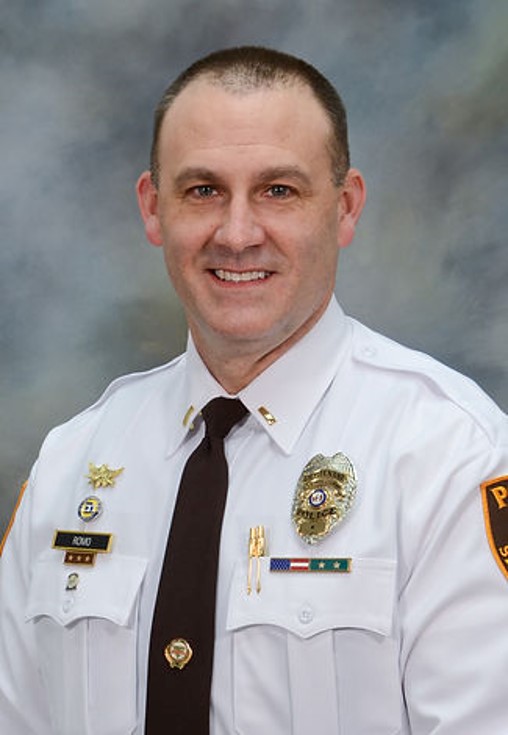 Jeremy Romo
Jeremy Romo Participants will learn the little-known ‘secret’ history and evolution of the term excited delirium, discuss what the term does and doesn’t mean in 2024 and what term(s) and concepts should be used instead. Participants will also learn about a new, radically different, way to conceptualize and approach these calls, as well as how to teach the new approach. After learning the technique, participants will have hands-on practice with case scenarios.
Room: White River F (1)
Level: Intermediate
Track: CIT Programming
 August 28, 2024 1:30 pm - 3:30 pm
August 28, 2024 1:30 pm - 3:30 pm Autism Spectrum Disorder and Crisis Interactions
 Cory Sutton
Cory Sutton Law Enforcement expects someone they encounter to follow commands and answer questions immediately. Individuals with Autism Spectrum Disorder are often not capable of completing these requests immediately. It is not that they do not want to; it has more to do with their ability to process commands, communicate effectively, and their often-lacking of understanding of social norms. When an individual is in crisis, this response can be delayed even more.
This workshop is to help responders recognize an individual may be on the spectrum and to possibly change their tactics to help them get to a safe outcome for the responders and the individual.
Room: 101/102 (1)
Level: Beginner
Track: IDD
 August 28, 2024 1:30 pm - 3:30 pm
August 28, 2024 1:30 pm - 3:30 pm If Your Only Tool’s a Hammer… Responding to Dementia & Mental Illnesses
 Tracey Wilkinson
Tracey Wilkinson Is it mental illness? Is it dementia? The answer to these questions should lead to different response techniques, but when your only tool is a hammer, you tend to respond as if everyone is a nail. CIT is known for its exemplary training in responding to individuals with mental illnesses, but dementia is not a mental illness. It is a growing health crisis affecting over 7 million Americans. Public safety professionals note increased and repeated calls for service, however some of the tools for response taught in CIT for individuals with mental illnesses assume everyone is a nail. Led by skilled craftsmen, apprentice participants will learn how to distinguish between someone with a mental illness and someone with a dementia. By drilling participants with live polls, Q&A and quizzes, interventions which are common for anyone in crisis and unique to those with dementia attendees will leave with diverse tools for their crisis toolbox.
Room: Grand Ballroom 7 (3)
Level: Beginner
Track: CIT Programming
 August 28, 2024 1:30 pm - 3:30 pm
August 28, 2024 1:30 pm - 3:30 pm Activate to Captivate: What You're Missing in Turning Their Brain "ON" During Training
 Kerry Mensior
Kerry Mensior  Leo Petrilli
Leo Petrilli Brain-centric Design (BcD) will show you how to arrange your course content so the brain will accept it, and how to present information in a way that people love to learn. It’s not clever…it’s science.
What’s keeping your students from learning ALL that you’re teaching them?
You are!
Sorry to tell you but you’re probably turning the learning parts of their brains off!
Most training activates only one or perhaps two of the brain's lobes.
Worse, an Instructor can easily, inadvertently and unknowingly shut down the most important part of the brain by just one action.
Come find out how you may be accidently doing that AND how to guarantee you’ll be turning their entire brains ON in the next class you teach!"
Room: Grand Ballroom 9 (3)
Level: Intermediate
Track: CIT Programming
 August 28, 2024 1:30 pm - 3:30 pm
August 28, 2024 1:30 pm - 3:30 pm HIDDEN HAZARDS IN POLICING: CRISIS INTERVENTION AND LEADERSHIP ENGAGEMENT
 Mike Alexander
Mike Alexander  Laura Nechanicky-Booth
Laura Nechanicky-Booth Law enforcement professionals encounter myriad challenges in crisis intervention and leadership roles. The workshop ""Hidden Hazards of Police Crisis Intervention and Police Leadership"" delves into the complexities of these roles, shedding light on often overlooked hazards and offering strategies for effective navigation.
Participants explore the intricate dynamics of crisis situations, learning to identify hidden hazards that may escalate tensions or compromise safety. Through case studies and interactive discussions, attendees gain insights into the psychological, emotional, and situational factors at play during crises, equipping them with a deeper understanding of how to mitigate risks and enhance outcomes.
Moreover, the workshop delves into the multifaceted nature of police leadership in crisis scenarios. Participants examine the unique challenges faced by leaders in maintaining order, ensuring safety, and fostering trust amid heightened tensions. Practical tools and techniques are shared to empower leaders to navigate complex situations with confidence and integrity.
Key topics covered include:
-Introduce the police Life Cycle and the hidden hazards in crisis intervention.
-Understanding the psychological and emotional dimensions of all parties during crisis situations.
-Developing strategies for de-escalation and conflict resolution.
-Enhancing parasympathetic leadership skills in high-stress environments.
-Promoting ethical decision-making and integrity in leadership roles.
Through this workshop, participants emerge better equipped to navigate the challenges of crisis intervention and police leadership, fostering safer communities and promoting positive outcomes in high-pressure situations."
Room: White River A/B (1)
Level: Intermediate
Track: Crisis Systems Transformation
 August 28, 2024 1:30 pm - 3:30 pm
August 28, 2024 1:30 pm - 3:30 pm Psychopharmacology Crash Course
 Chrissy Hopp
Chrissy Hopp  Sarah Heming
Sarah Heming Introductory information regarding the major medications used in the field of psychiatry with a focus on relevance to Crisis Intervention.
Room: Grand Ballroom 8 (3)
Level: Beginner
Track: CIT Programming
 August 28, 2024 1:30 pm - 3:30 pm
August 28, 2024 1:30 pm - 3:30 pm Making Your CIT Training A Better Success!
 Sarah Burtenshaw
Sarah Burtenshaw CIT 40-hour training programs provide an incredible amount of valuable information for front line officers. The best learning happens when topics are presented in a meaningful manner. This workshop is filled with dozens of interesting exercises, videos and activities on a multitude topics covered in a CIT training program to help develop knowledge and skills.
Come and learn about a variety of mental health topics while being entertained. These activities and resources can be utilized in your own training programs."
Room: White River G/H (1)
Level: Beginner
Track: CIT Programming
 August 28, 2024 1:30 pm - 3:30 pm
August 28, 2024 1:30 pm - 3:30 pm Native Resilience: Learning to Police from a Trauma-Informed Lens
 Kelly Johnson
Kelly Johnson  Lisa Sanderson
Lisa Sanderson  Jayme Lewallen
Jayme Lewallen The Yurok Tribal Police and Hoopa Valley Tribal Police Departments are developing a Trauma-Informed Co-Response Team to focus on the specific cultural needs in our region. The Yurok Tribe is the largest tribe in California and the reservation spans two rural counties in far northern California. The Hoopa Valley Indian reservation is next to the territory of the Yurok at the connection of the Klamath and Trinity Rivers in northeastern Humboldt County. Come learn about Trauma-Informed Responses in Indian Country, which can be applied to any marginalized community. This presentation will focus on the sociological impacts of trauma including historical and intergenerational trauma.
Room: 103/104 (1)
Level: Intermediate
Track: CIT Programming